Year 6
2025 - 2026
Spring 1
28.1.26
This week in Spanish, we have been finding adjectives in the bilingual dictionary to describe the qualities a person needs to do certain jobs.
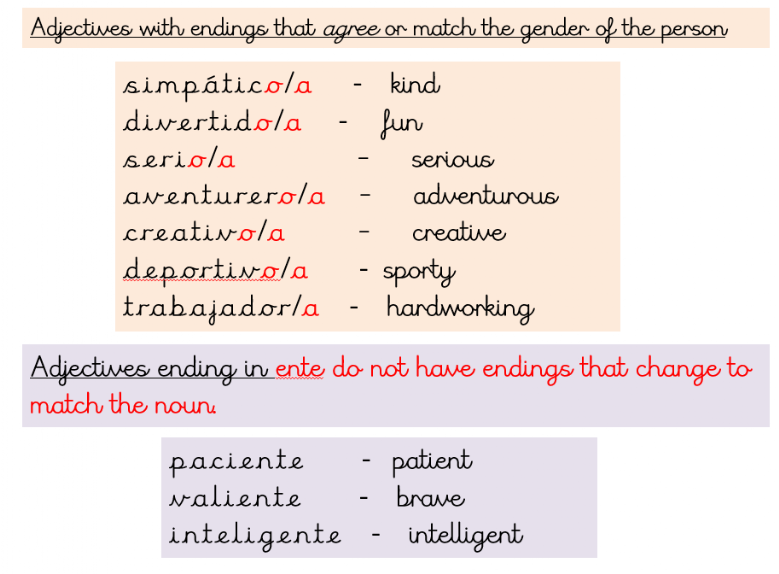
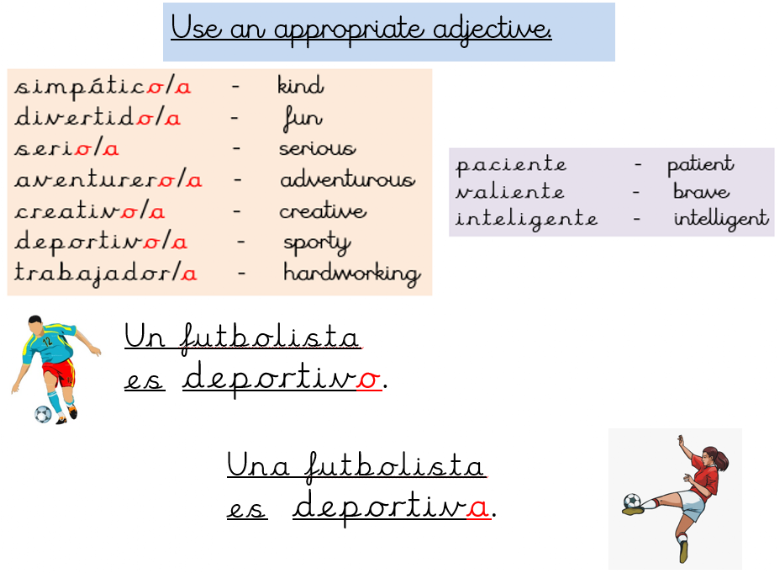
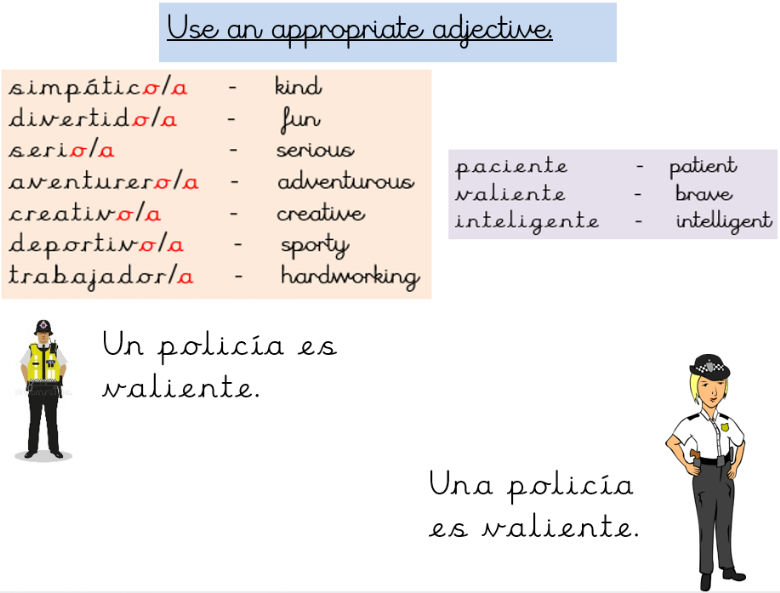
21.1.26
Today we did some pattern seeking, using lots of different professions in Spanish. We grouped them all according to their spelling patterns.
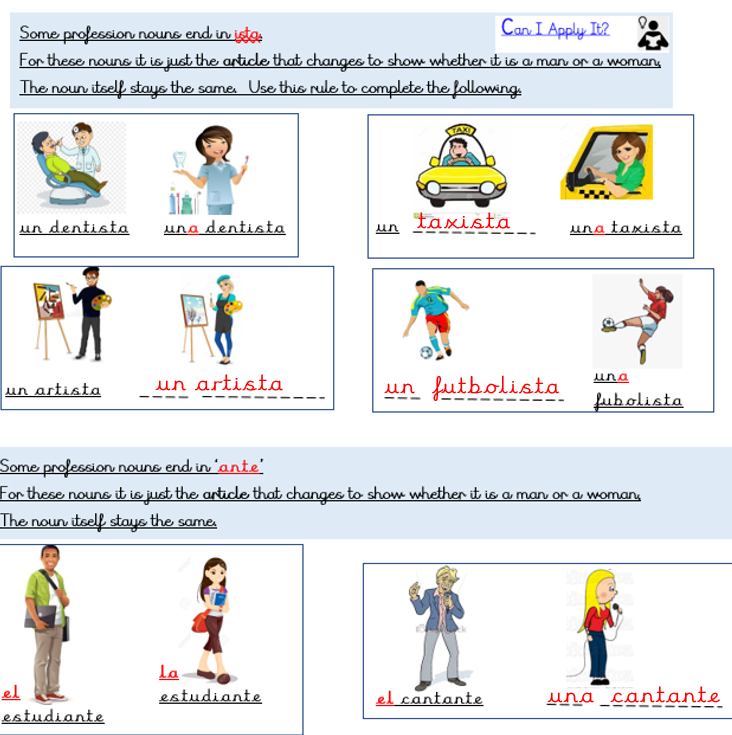
14.1.26
This half term we will be learning now to say which jobs we would like to do. In Spanish, many of the job names look similar to our English ones. We call these similar names cognates.
We started this week, by looking at a group of jobs that follow the same grammar rule, according to whether the person is male or female.
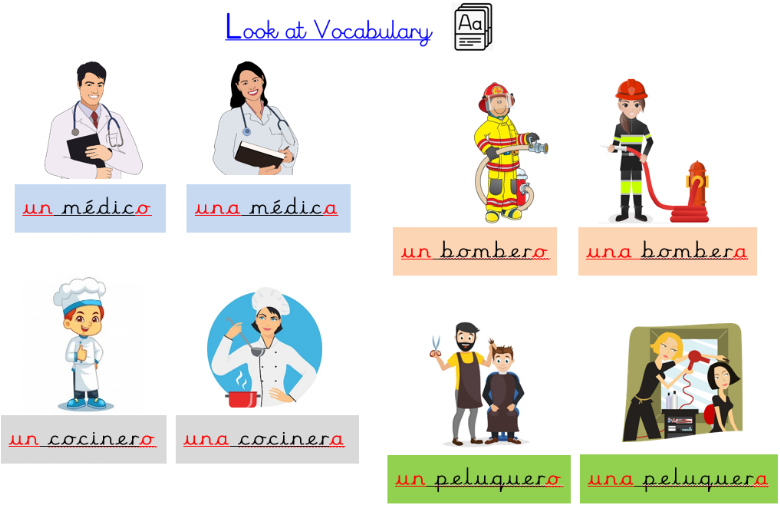
Autumn 2
10.12.25
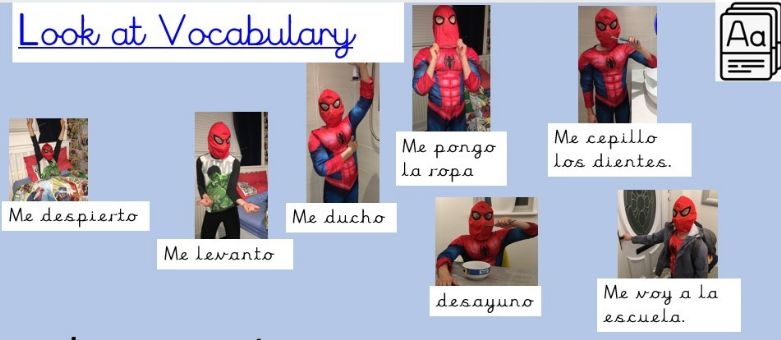
This week, we wrote sentences describing the times that we do our daily routines.
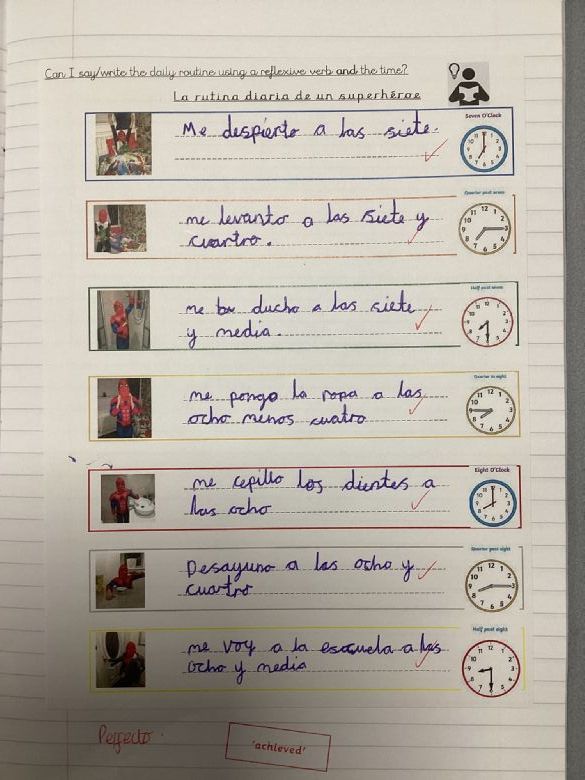
3.12.25

Today, we have been language detectives, trying to deduce the meaning of an unfamiliar text. Before we looked in the Spanish dictionary, we looked for clues.

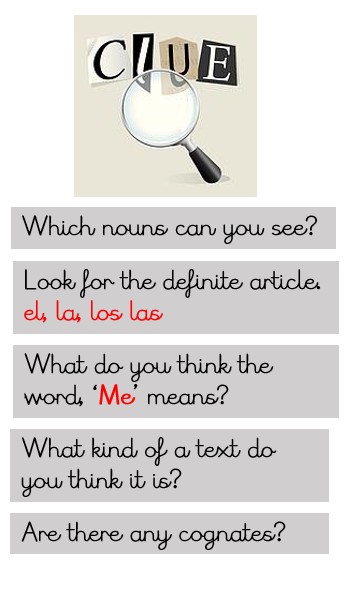
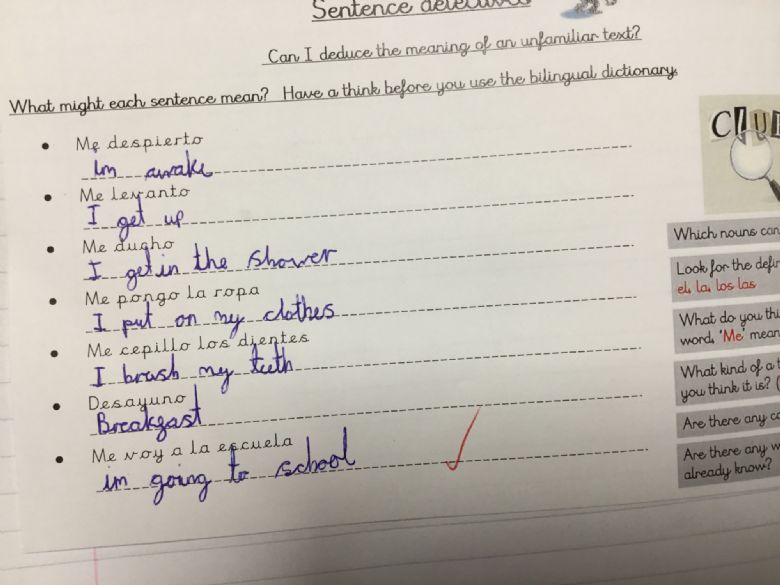
19.11.25
This week, we have been learning how to tell the times to a quarter to and quarter past the hour in Spanish.
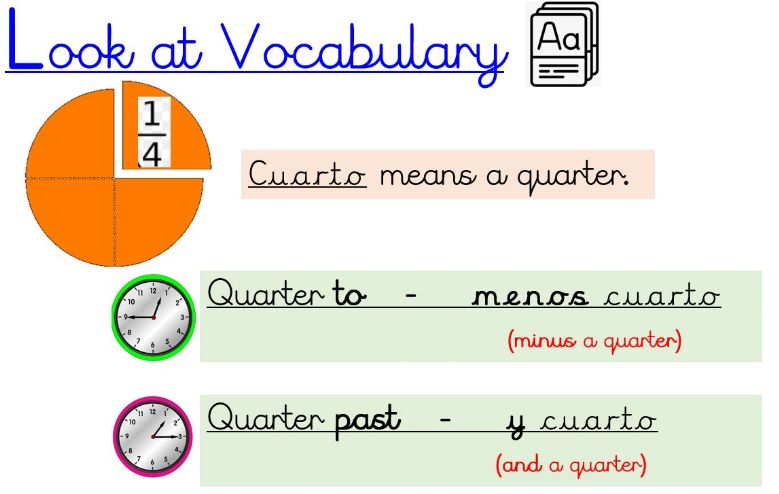
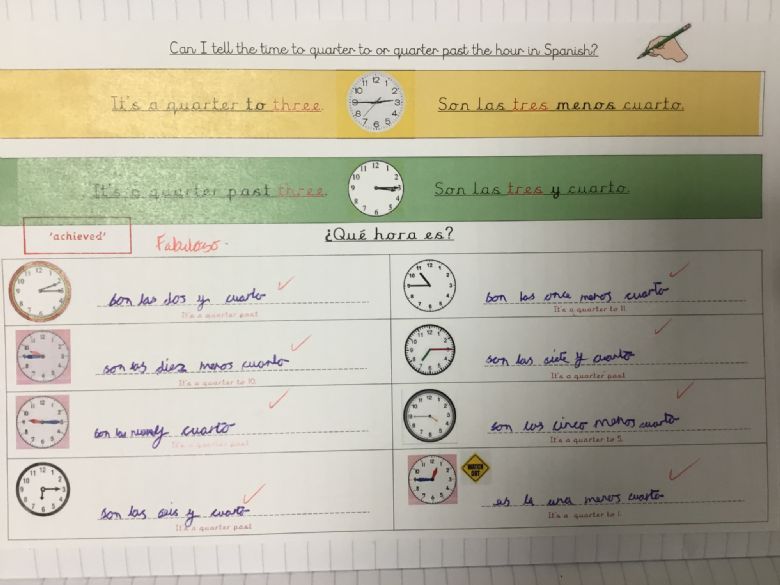
Autumn 1
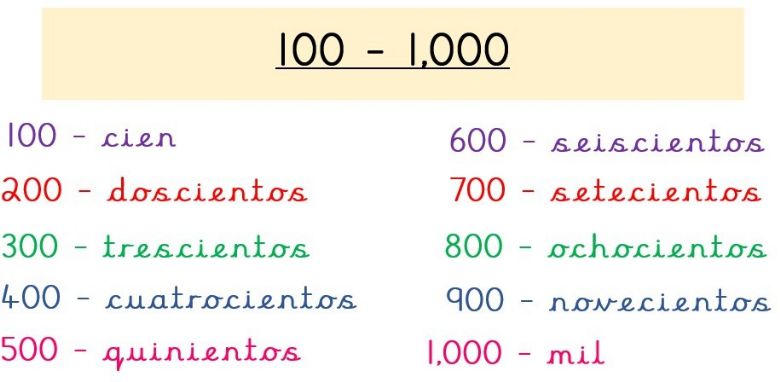
Welcome to the Year 6 Spanish blog for 2025 - 2026. The children have made a great start to the year, by counting in multiples of 100 up to 1,000. We have also been learning how to express how we are feeling, using 2 different verbs tener and estar.
Tener - to have
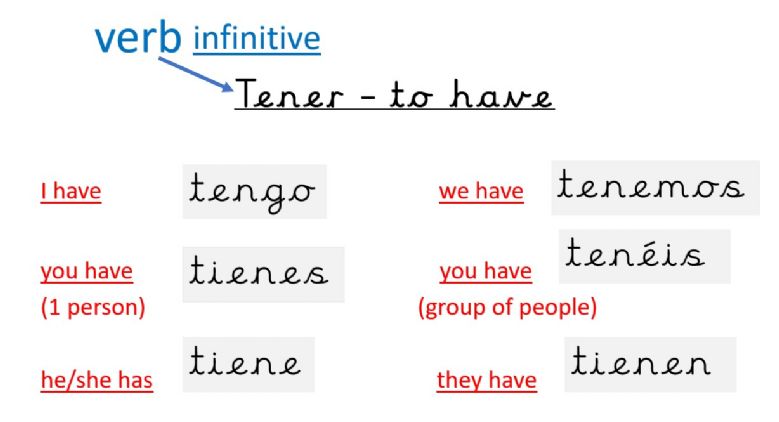
Estar - to be
We built some sentences, describing how different weather types make us feel.
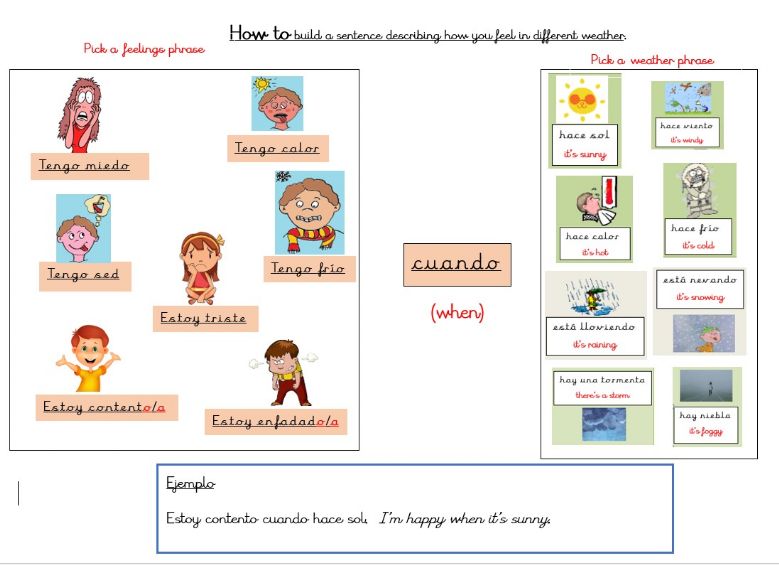
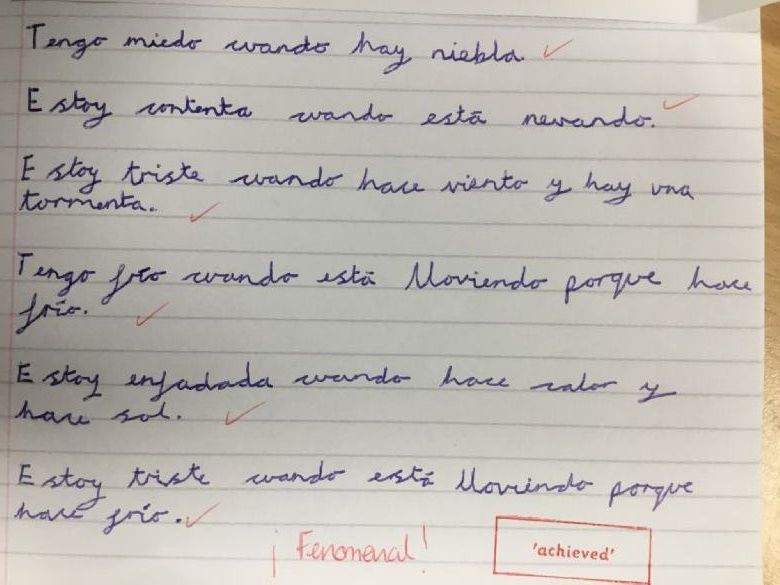
2024 - 2025
Summer 2
26.6.25
Today, we have been creating simple menus for a Spanish cafe.
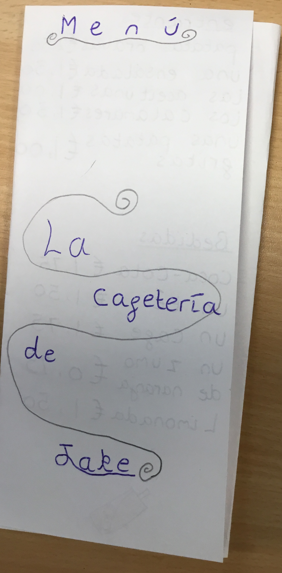
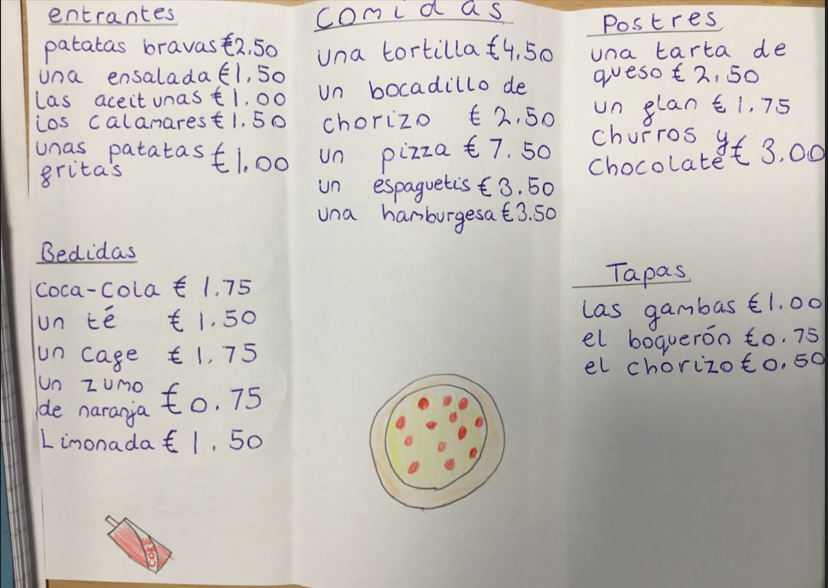
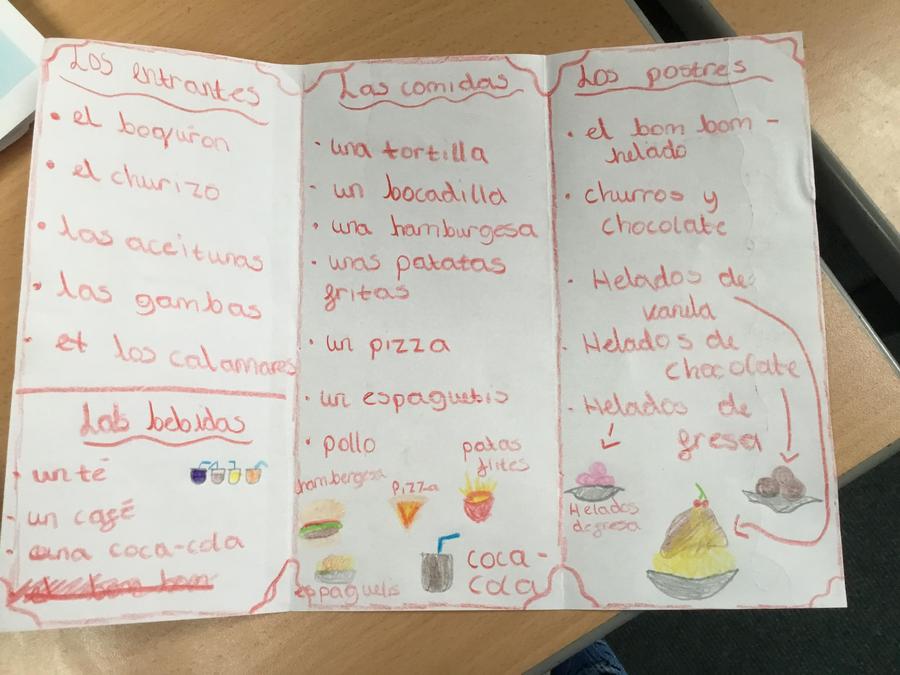
19.6.25
Today, we read a story about the alien family going to a restaurant. Then we answered some questions about the story.
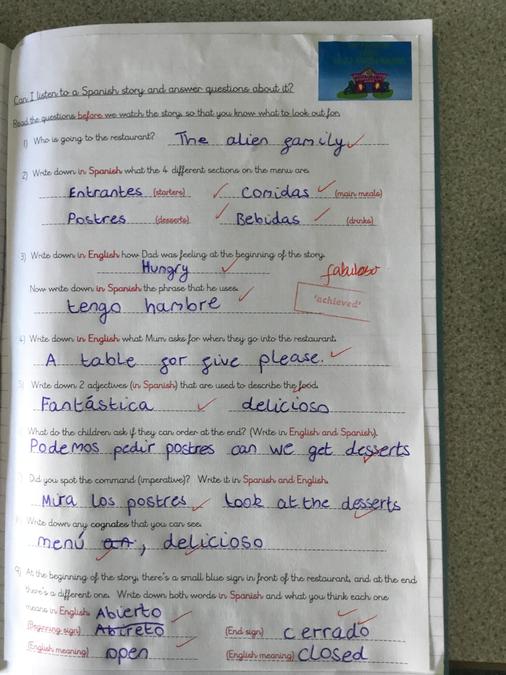
12.6.25
This week, we have been learning about typical Tapas, and how they originated.
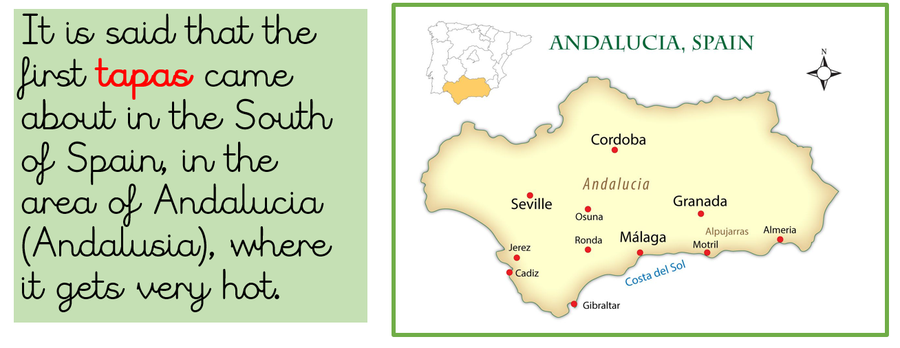

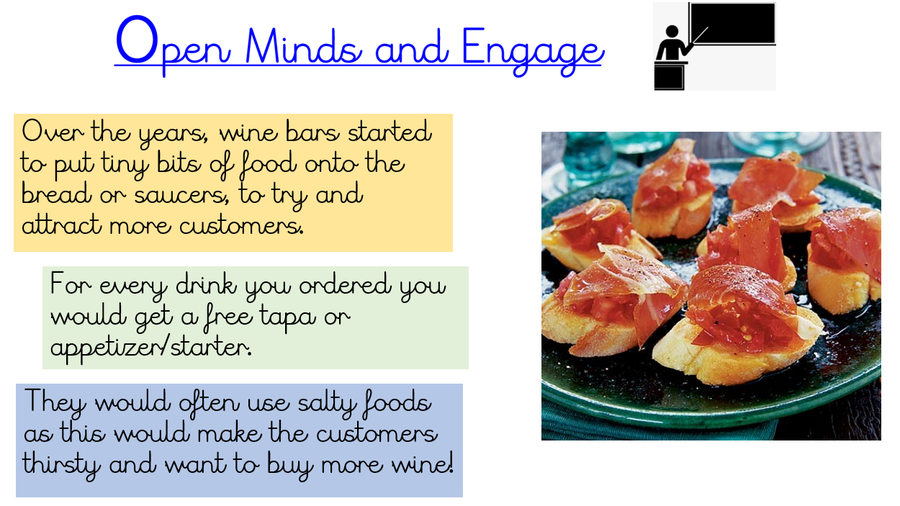
We practised how to order them politely.
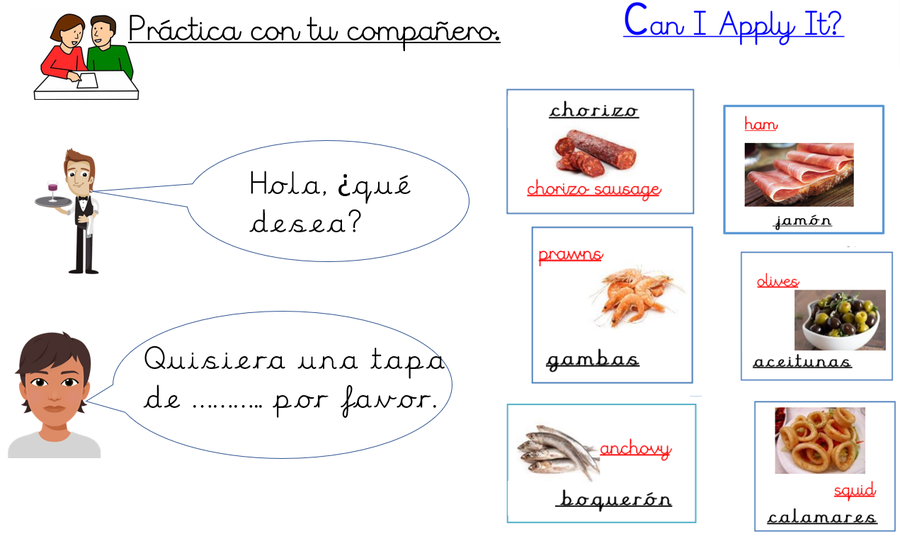
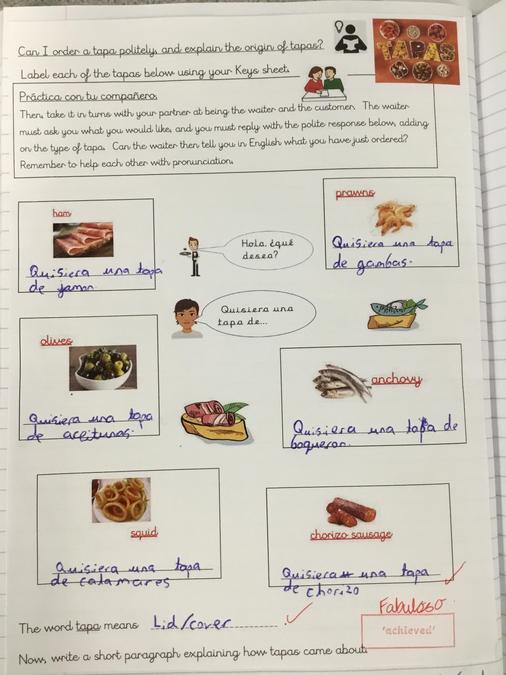
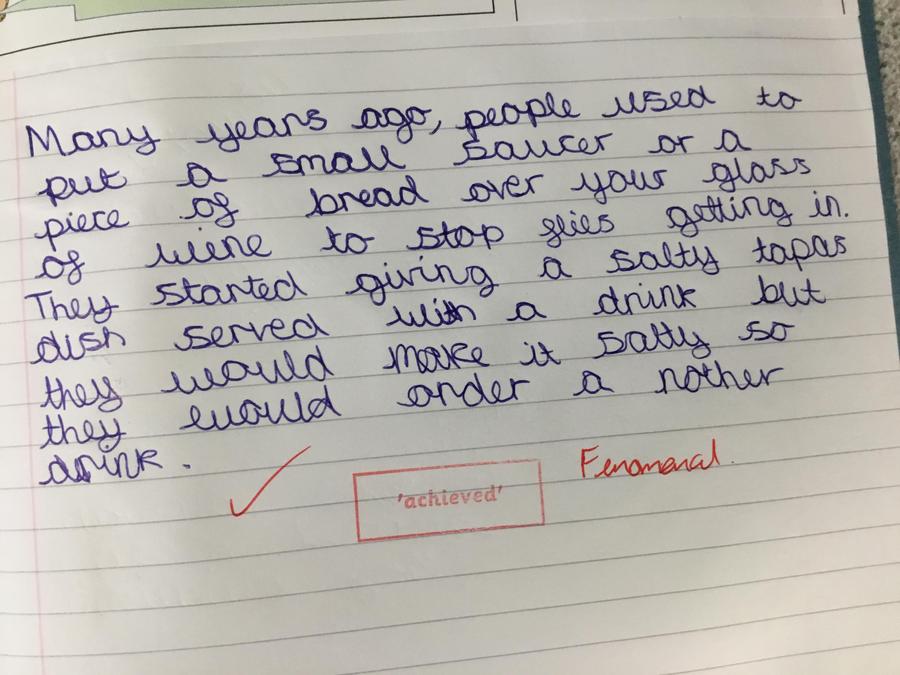
Summer 1
24.4.25
Today, we started to learn the names of rooms in the house.
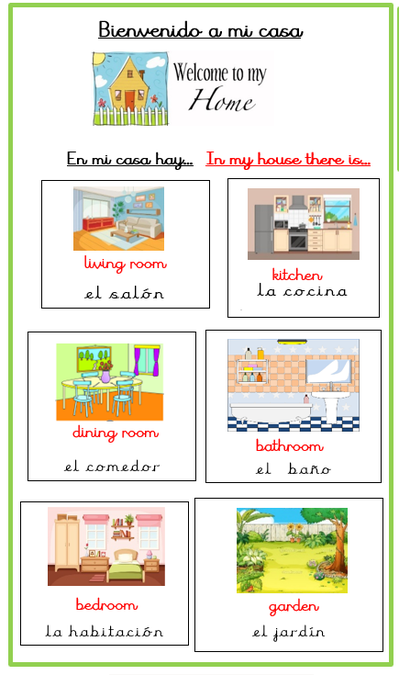
We learnt how to say which room of the house Wally is in.

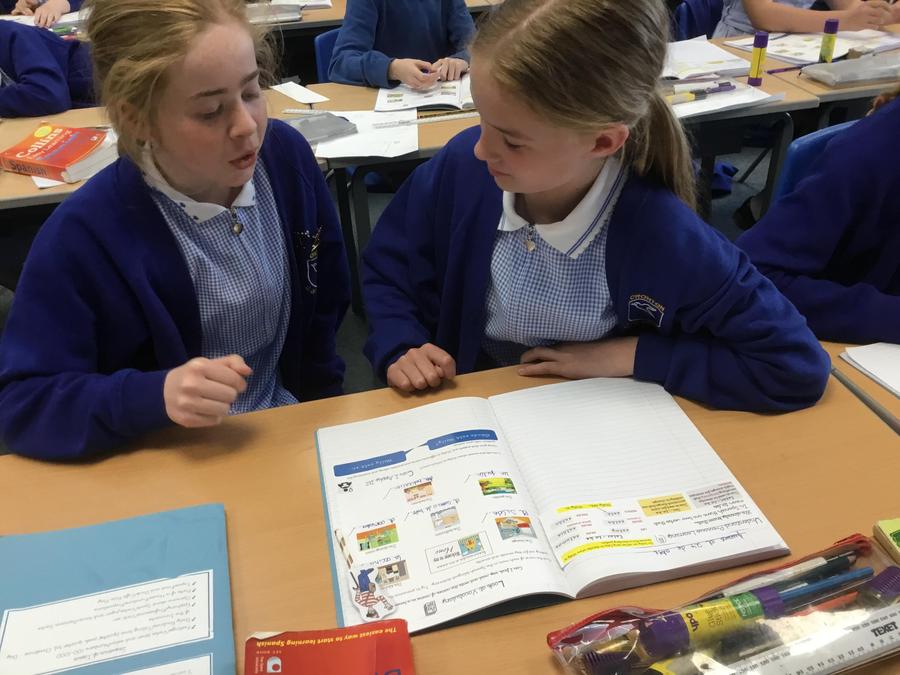

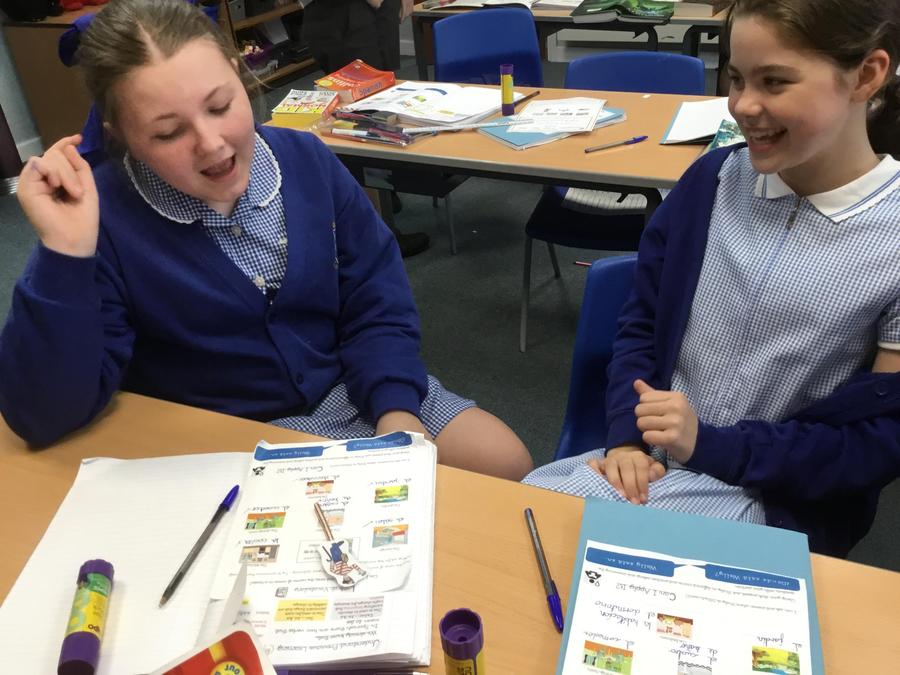
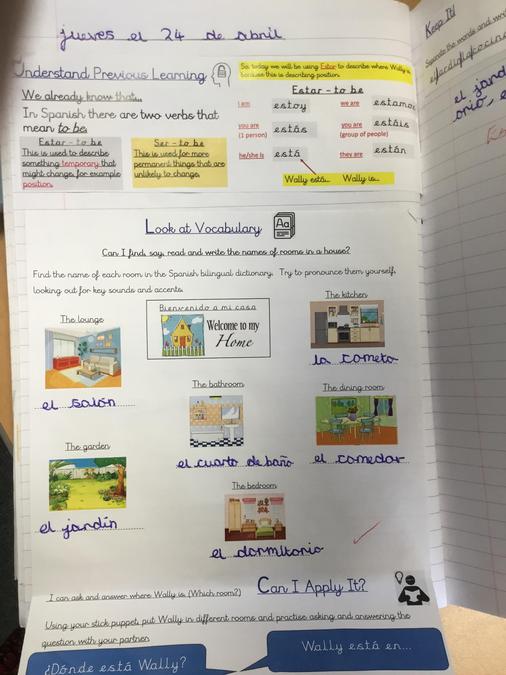
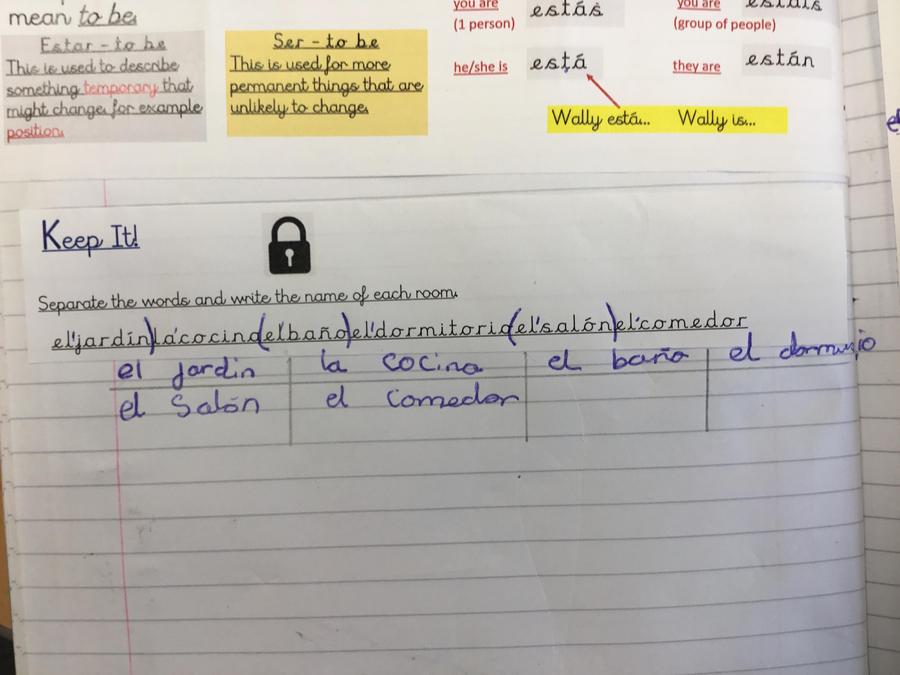
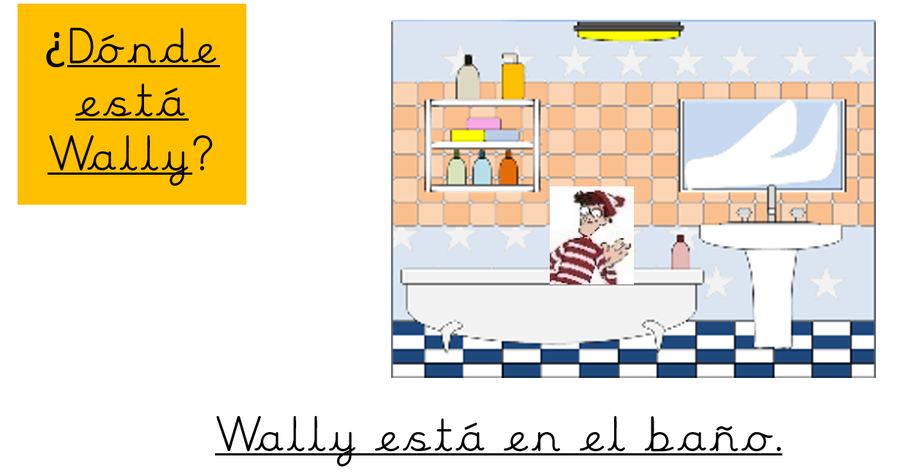
Spring 2
19.3.25
This week, we have been learning how to give a reason for liking or disliking certain sports.
I love to play tennis because it's fun.
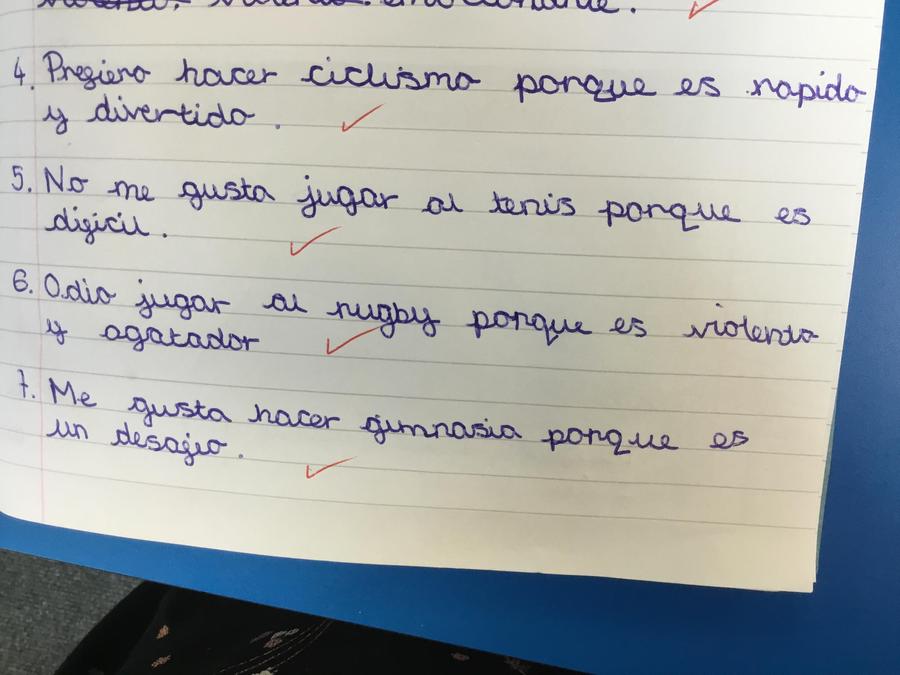
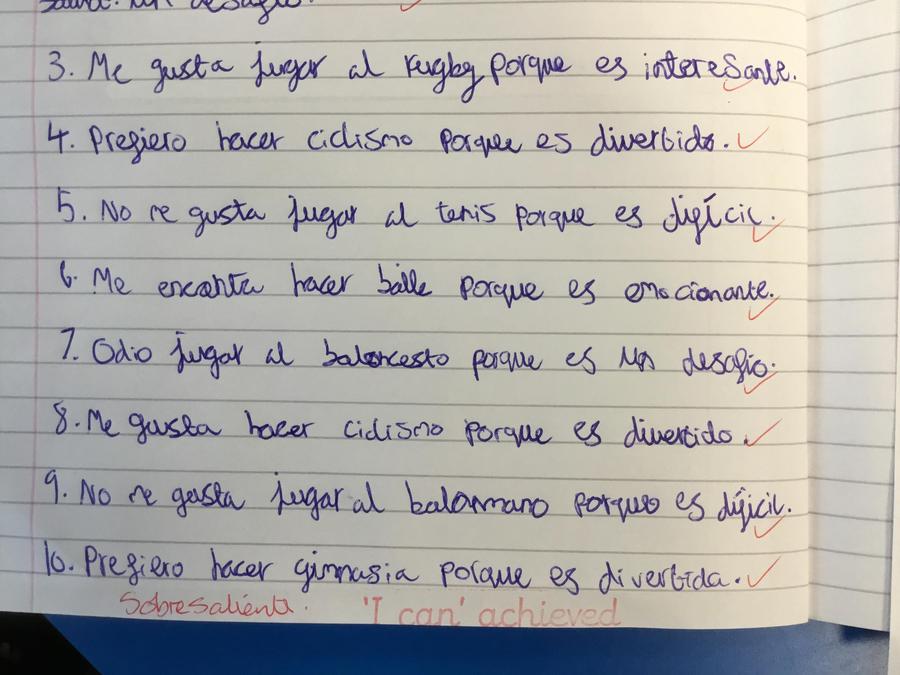
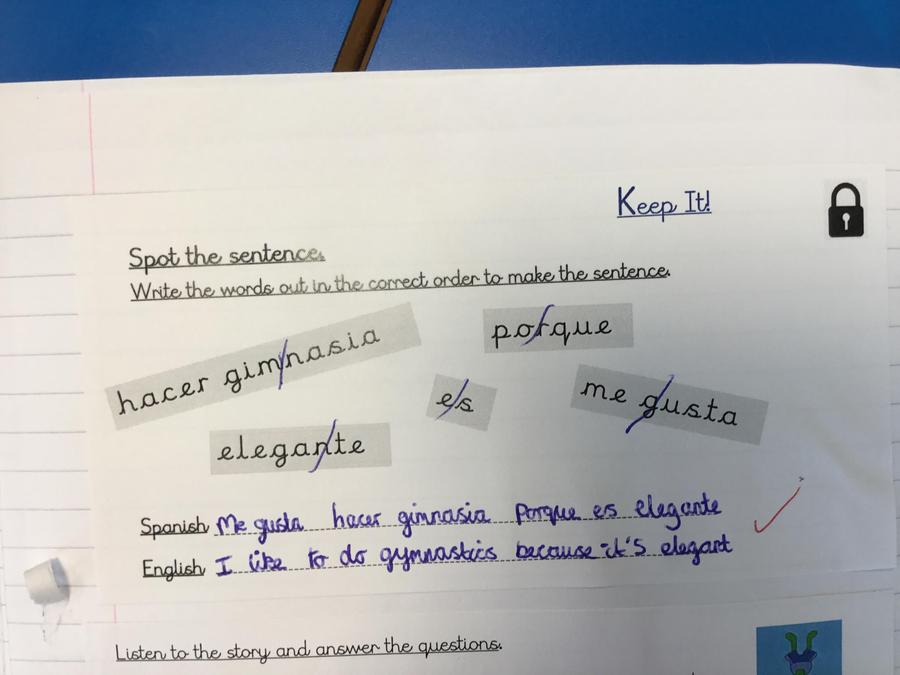
12.3.25
Today we learnt how to express our opinions about different sports.

We practised saying and writing different sentences.
I like cycling, but I prefer swimming.
I love playing football.
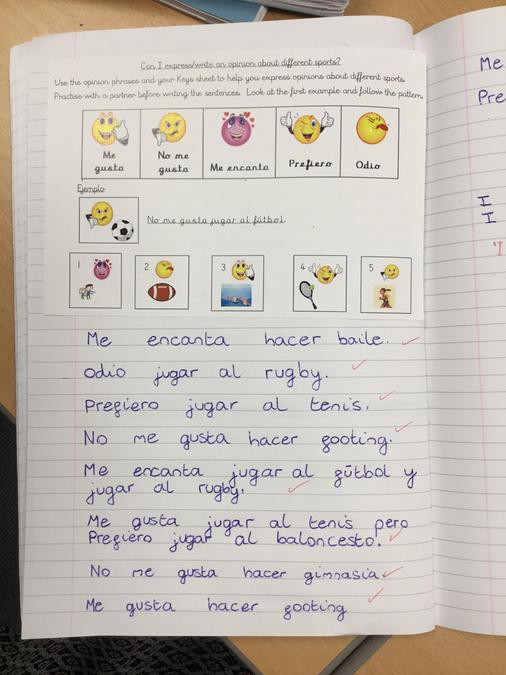
6.3.25
This week, we looked at the verbs jugar (to play) and hacer (to do), in more detail.

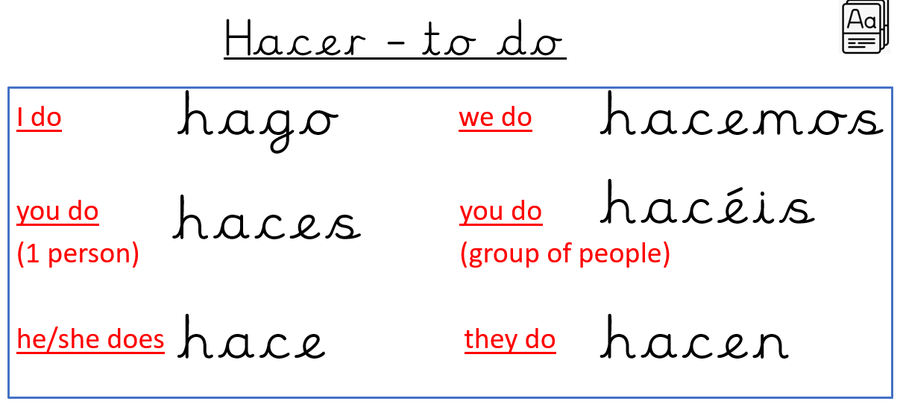
We practised using them in different sentences.
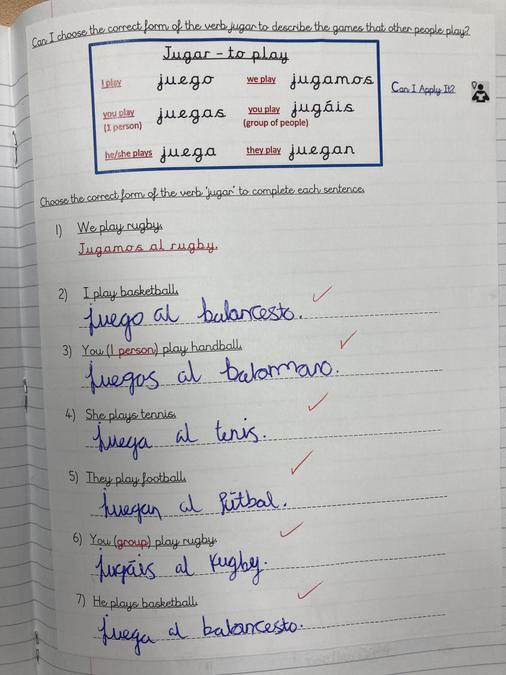
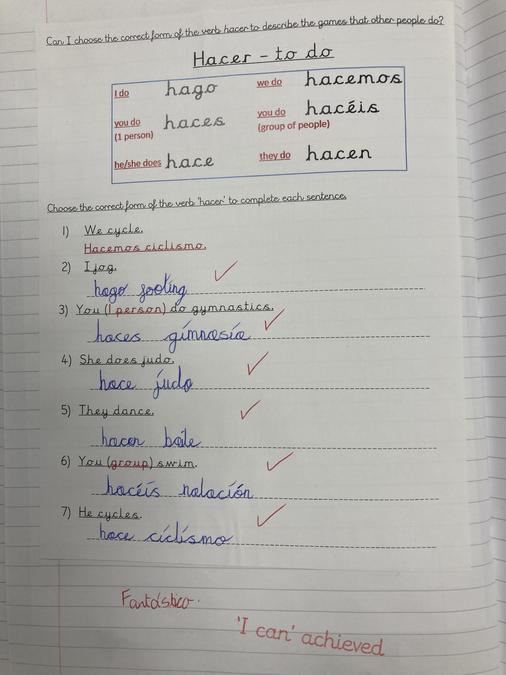
27.2.25
Sports
This week, we have started to learn how to express different sports that we play. We looked at 2 verbs that we can use.
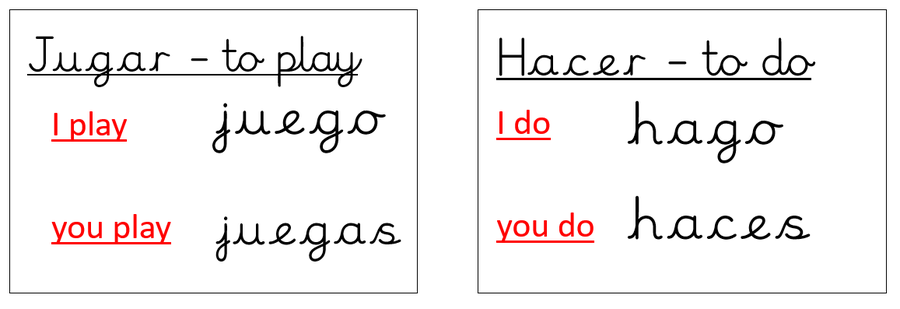
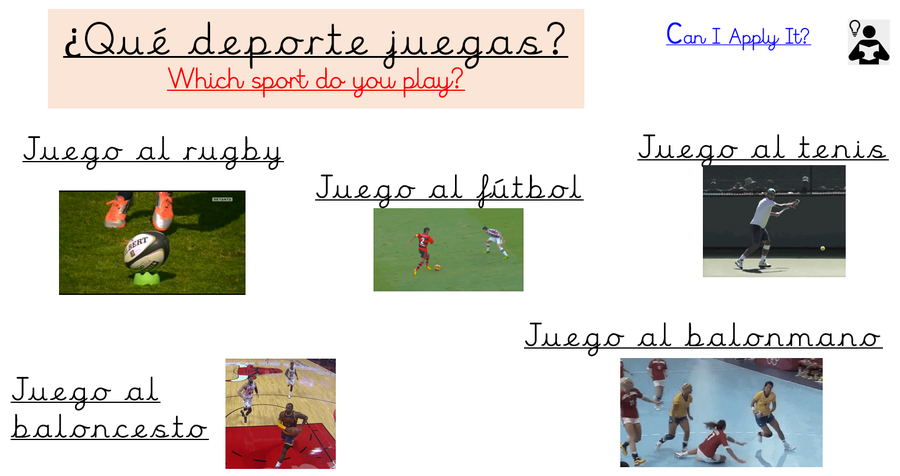
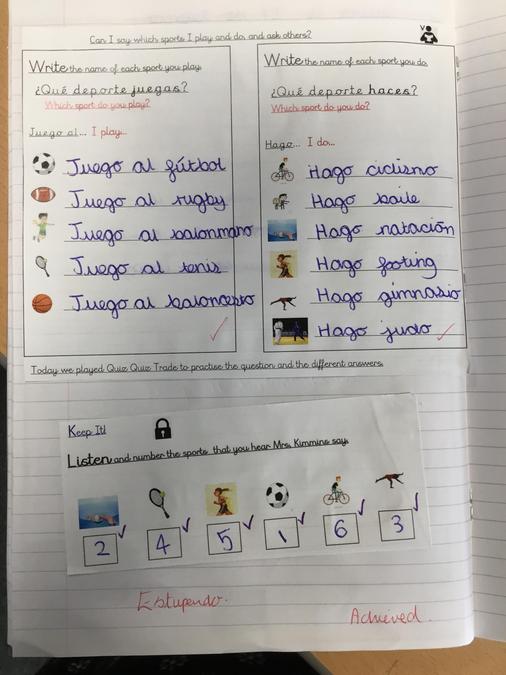
Spring 1
13.2.25
Today, we learnt how to put a new verb together.

Then we practised putting the verb together with the professions we know.



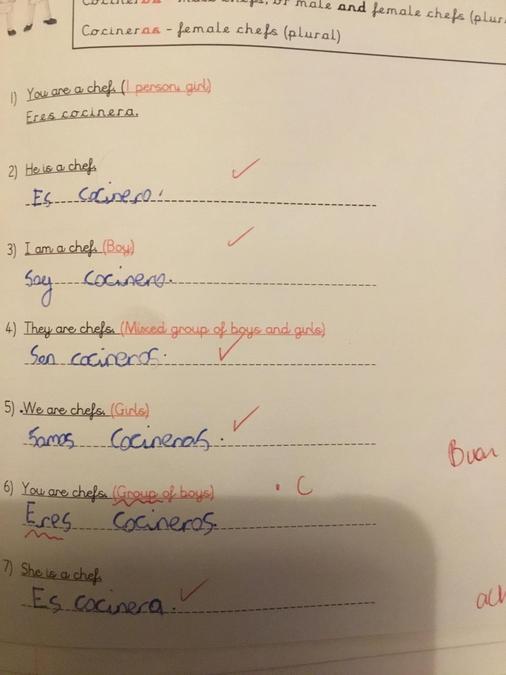
6.2.25
This week, we put everything we have learnt this term together in a longer sentence, using the word because. (porque).
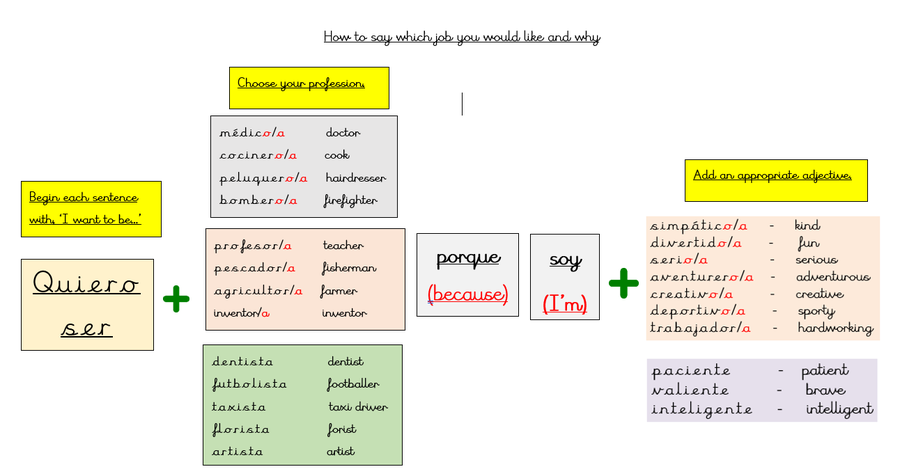
I want to be an actress because I'm dramatic.
I want to be an orthodontist because I'm a perfectionist.

year-6
30.1.25
This week, we have been finding adjectives in the bilingual dictionary to describe people who do certain jobs.
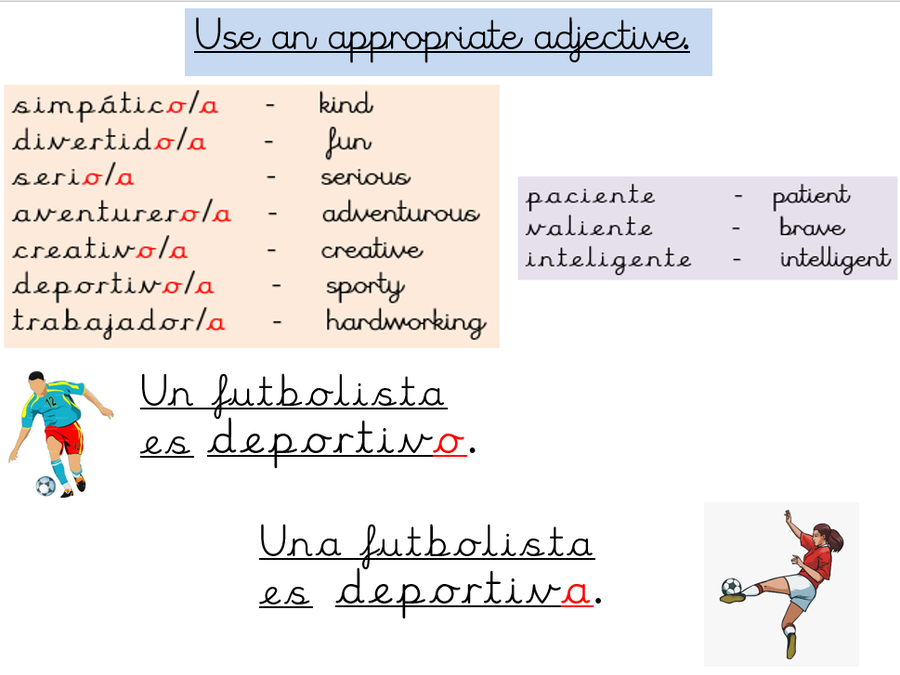
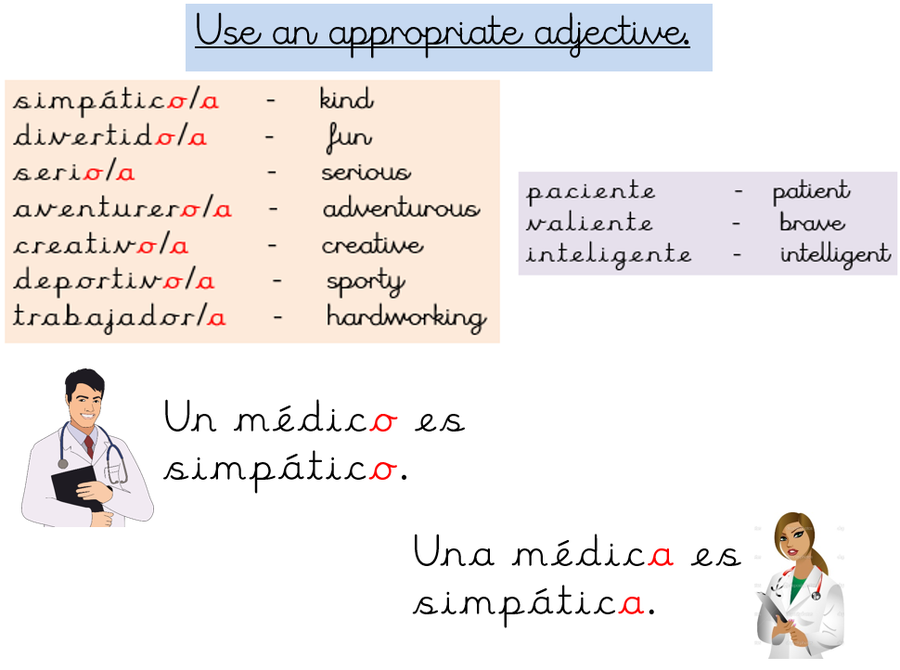
Some of the adjectives have to change to match the gender of the person they are describing, but others stay the same. The bilingual dictionary explains this.
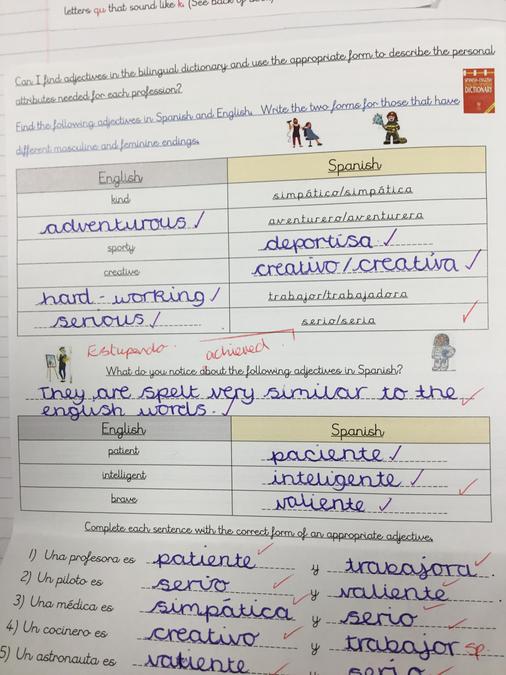
23.1.25
This week we have been learning how to say what we would like to be when we grow up.
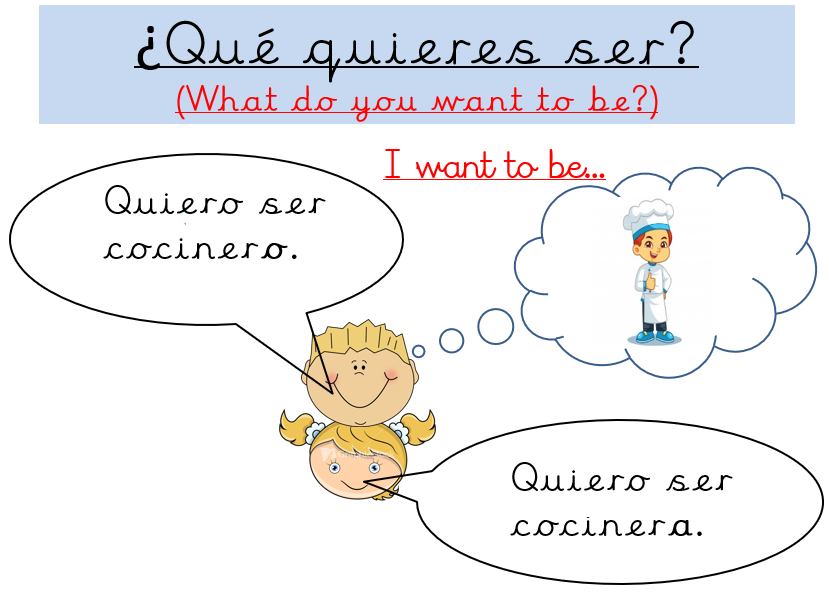
I want to be a footballer or a singer.
I want to be an orthodontist.
I want to be a professional golfer, or a defence lawyer.
year-6
16.1.25
Today, we have been pattern seeking. We sorted lots of different professions into groups, according to their spelling. Each group has its own rule for masculine and feminine nouns.
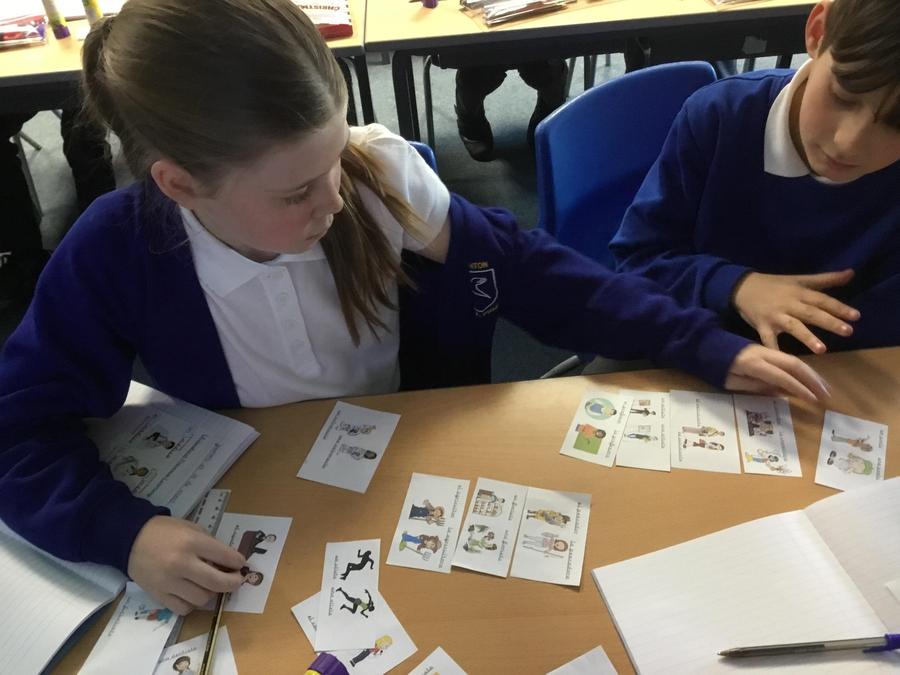
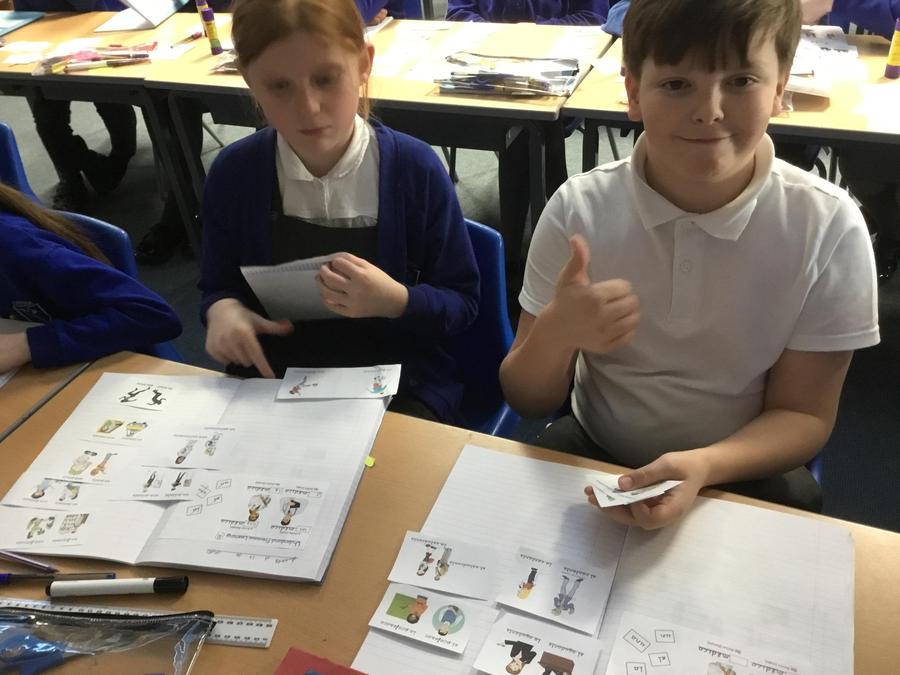
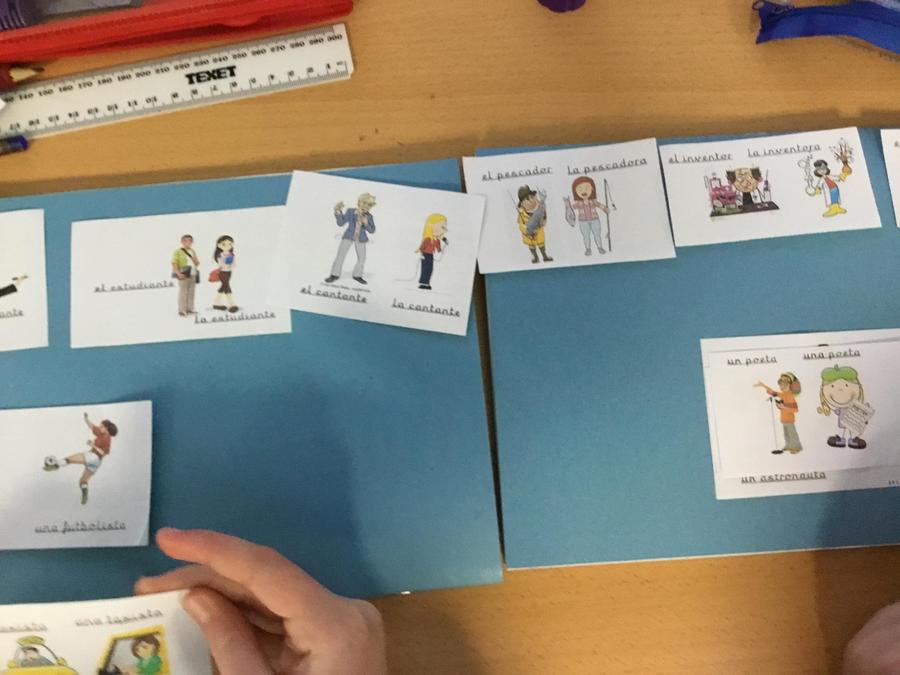
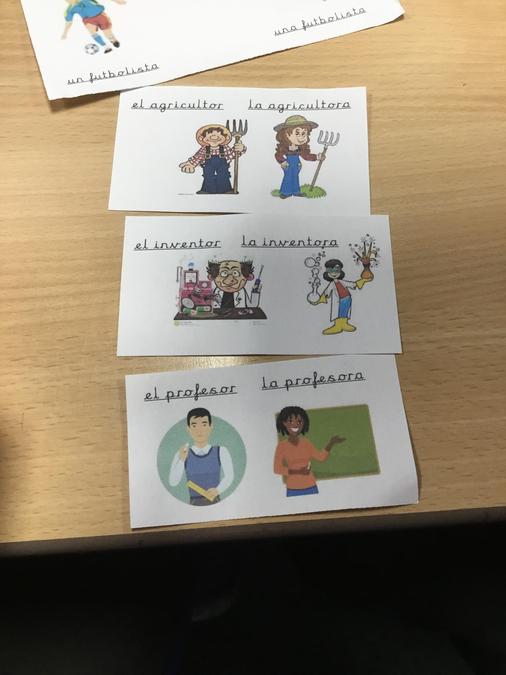
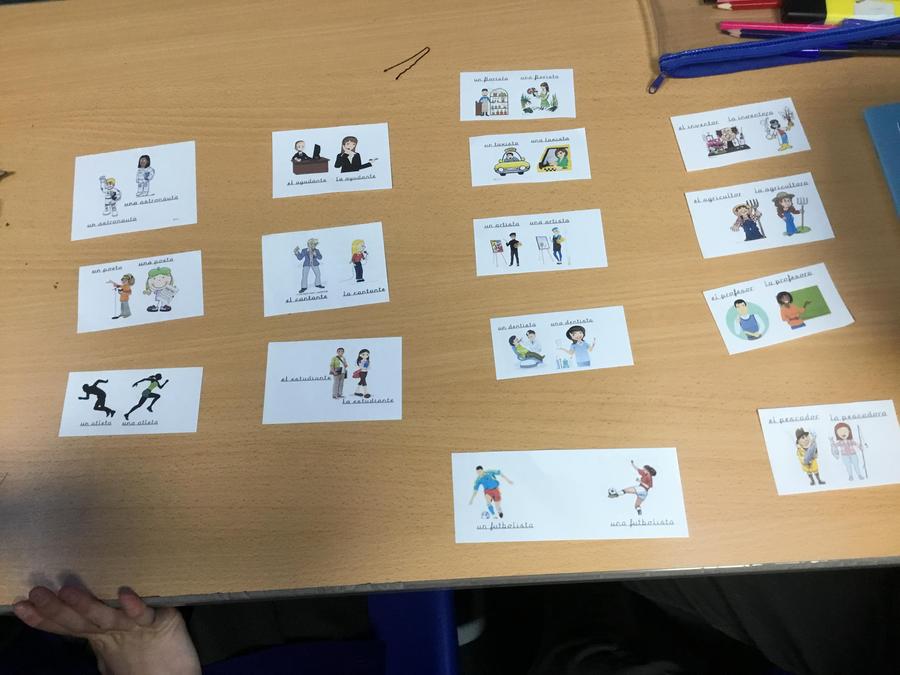
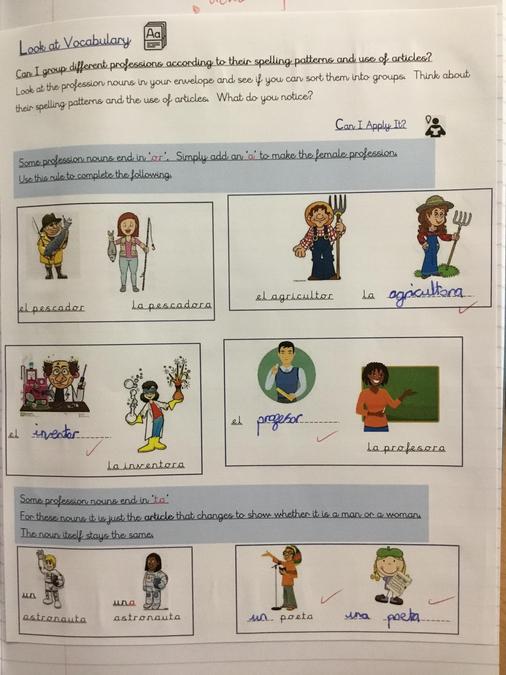
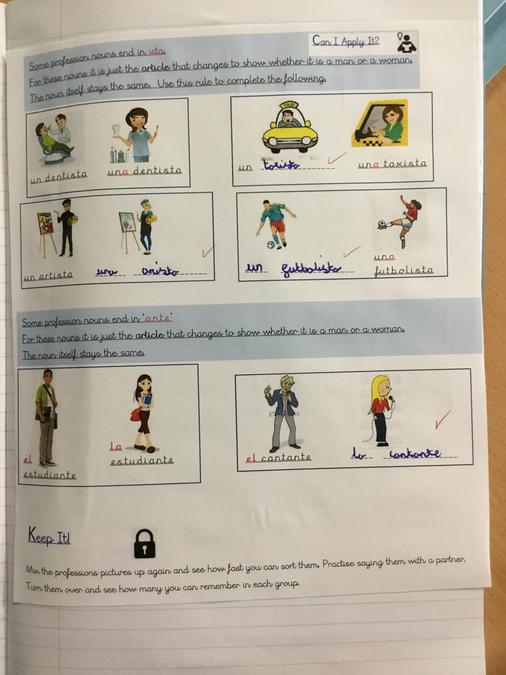
9.1.25
Professions
This week, we started to look at the names of different jobs in Spanish. We could guess most of them because their names are cognates (the same or similar to English)
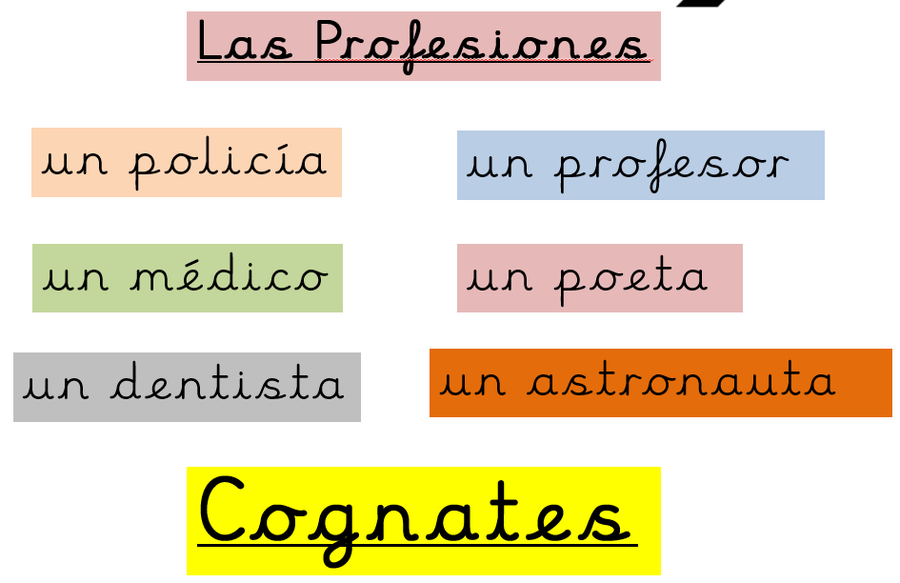
Some professions have endings that change, depending on the gender of the person they are describing.

Then we learned how to use the jobs in a simple sentence.
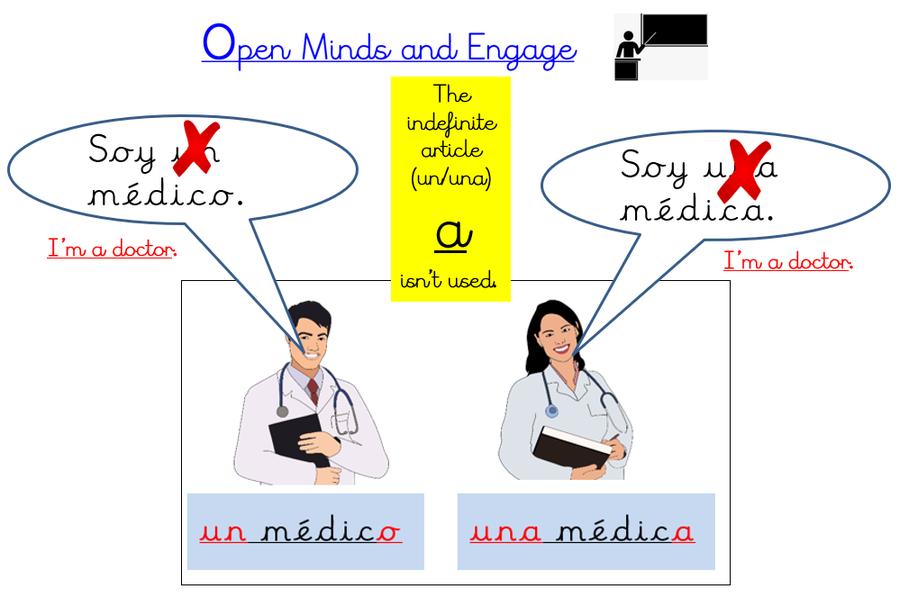
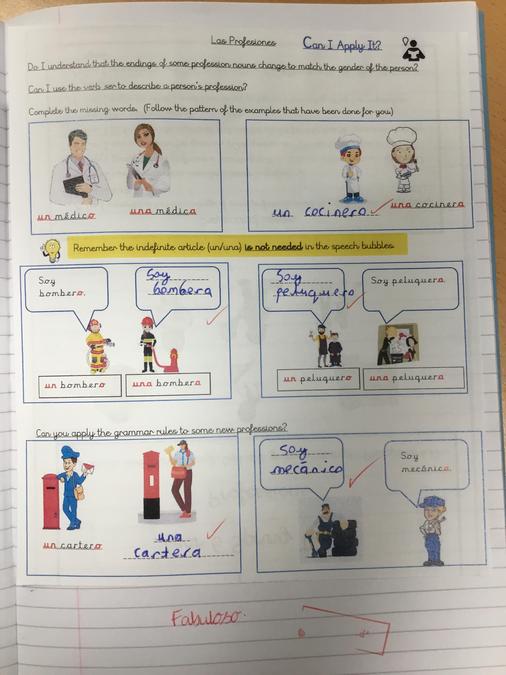
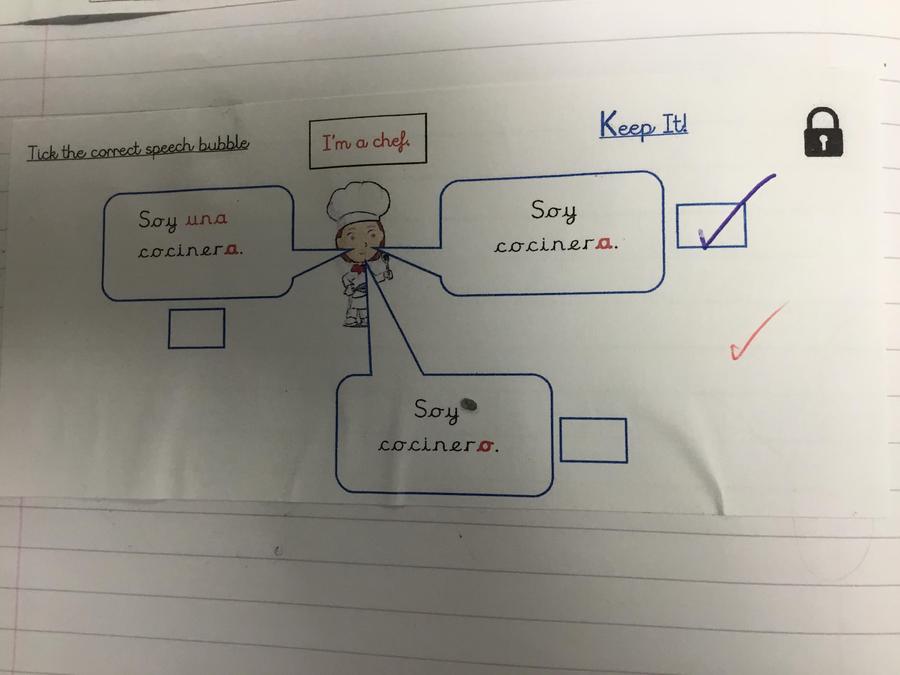
Autumn 2
12.12.24
The Day of the Innocents El Día de los Inocentes
This week, we have been learning about a celebration in Spain that takes place on the 28th. December. It is held in order to remember the innocent baby boys that were killed by King Herod. People like to play practical jokes on each other.
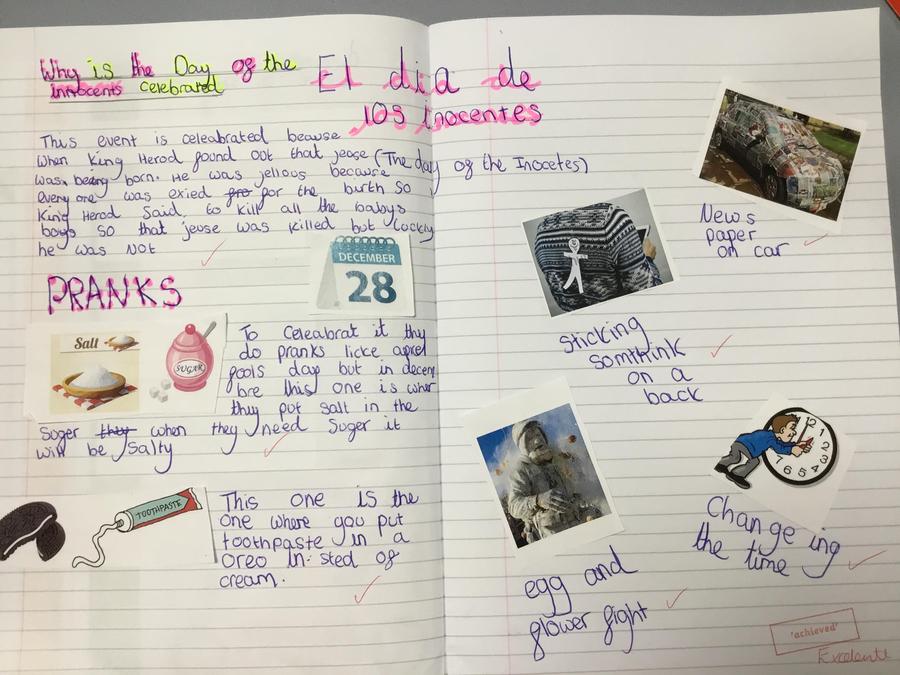

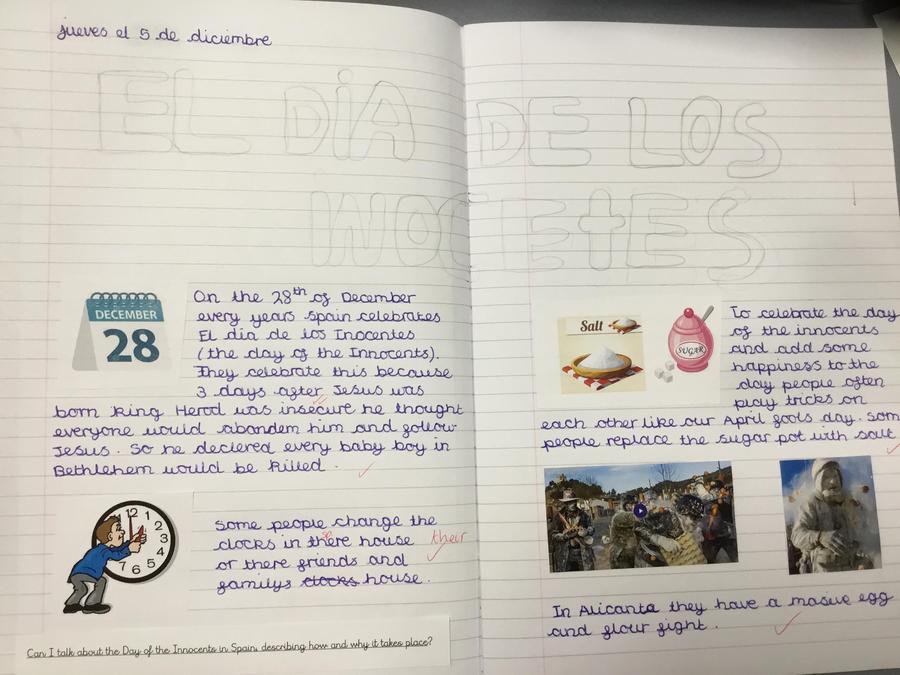
5.12.24
Today, we added times to the daily routines we learnt last week.
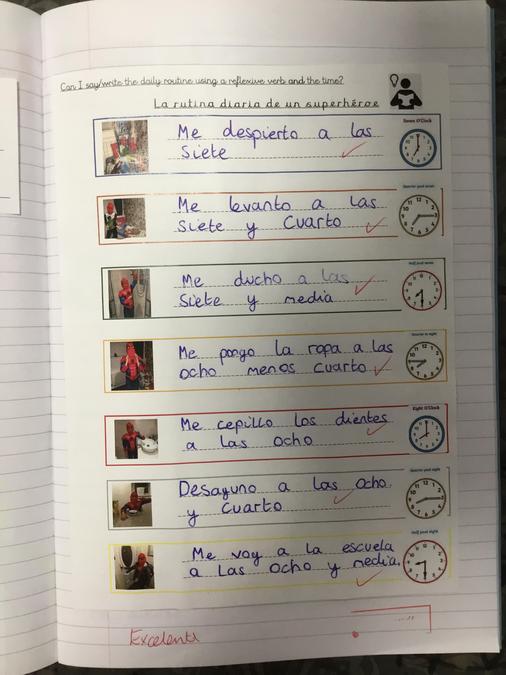
28.11.24
This week, we had to be language detectives. We were given a short text and had to look for clues to help us deduce the meaning. 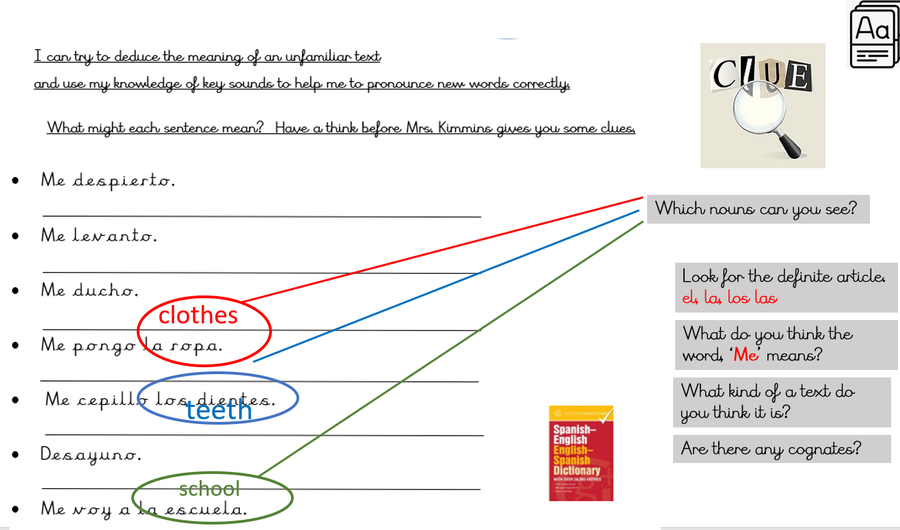
Using the clues and a little help from the dictionary, we discovered that the mystery text was a list of daily routines before going to school.
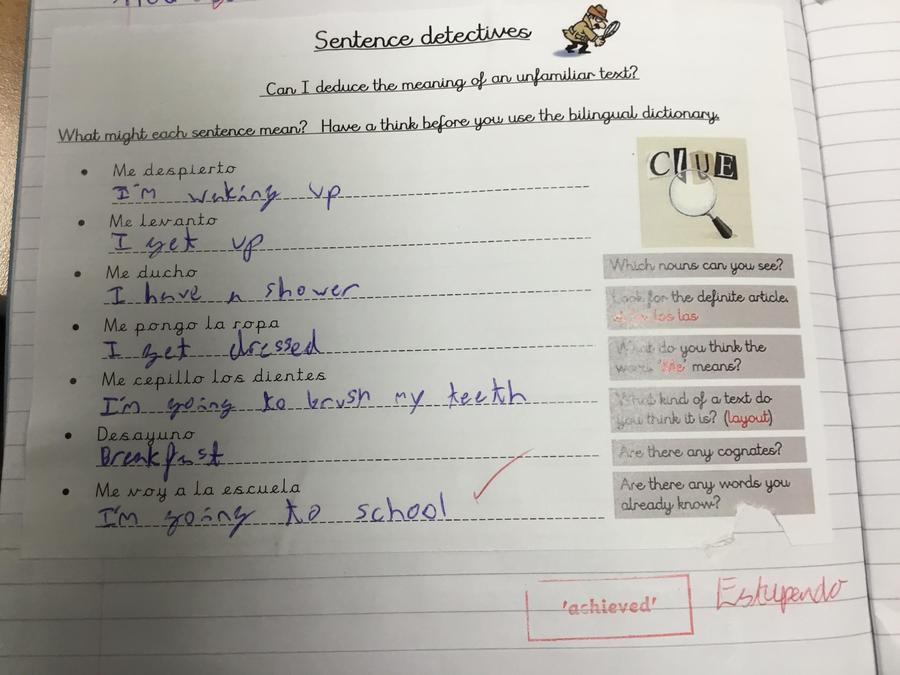
We learnt how to say and recognise the routine phrases, using actions to help us.
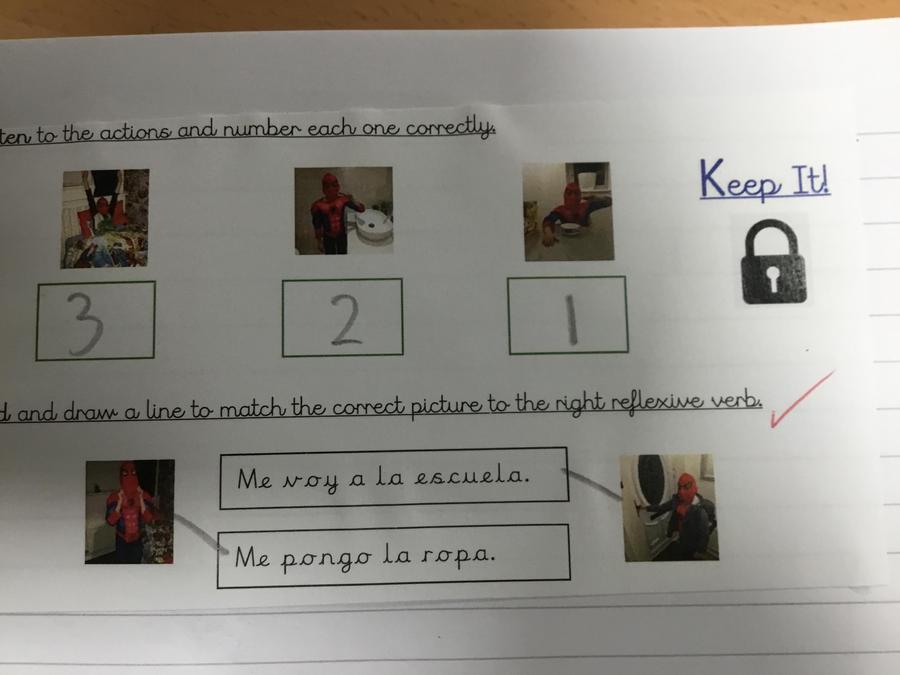
21.11.24
Today in Spanish, we have been learning how to tell the time. We concentrated on quarter to the hour and quarter past the hour times.


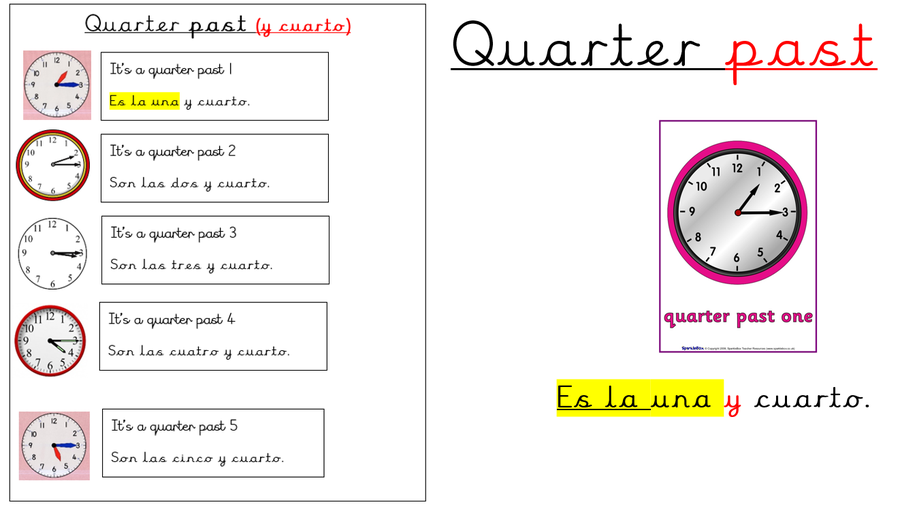
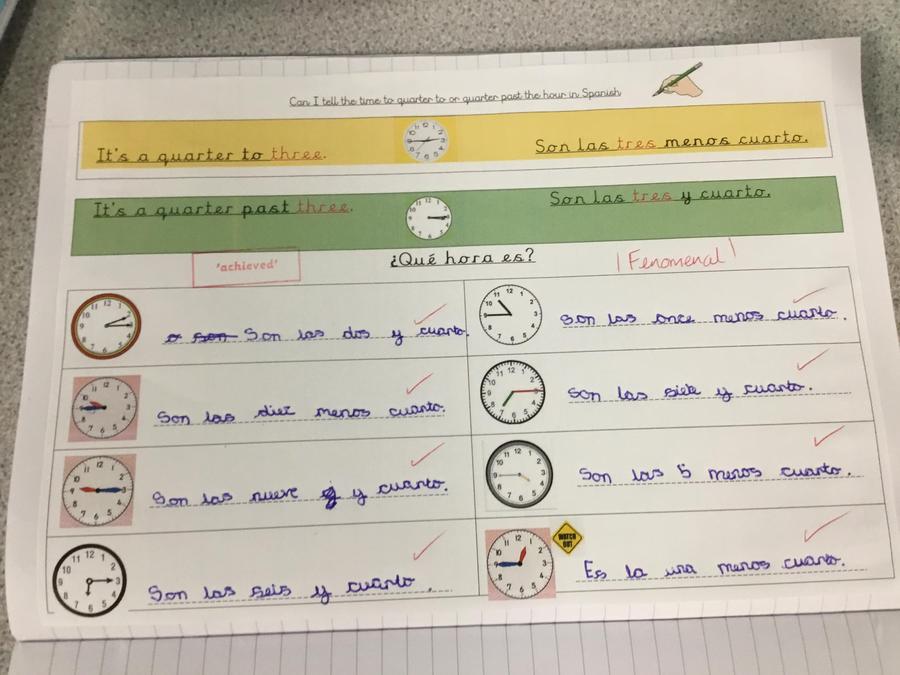
4.11.26
Today, we learnt how to use different adjectives with the verb estar to describe how different groups of people are feeling.


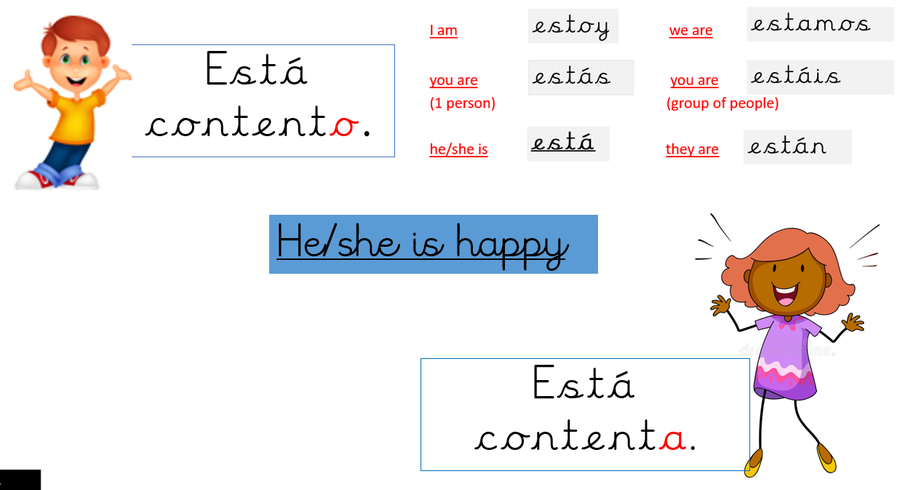
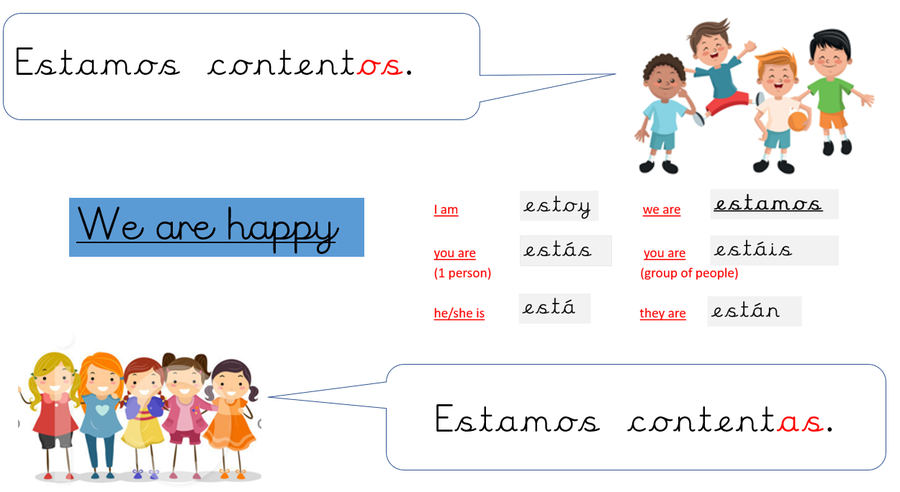
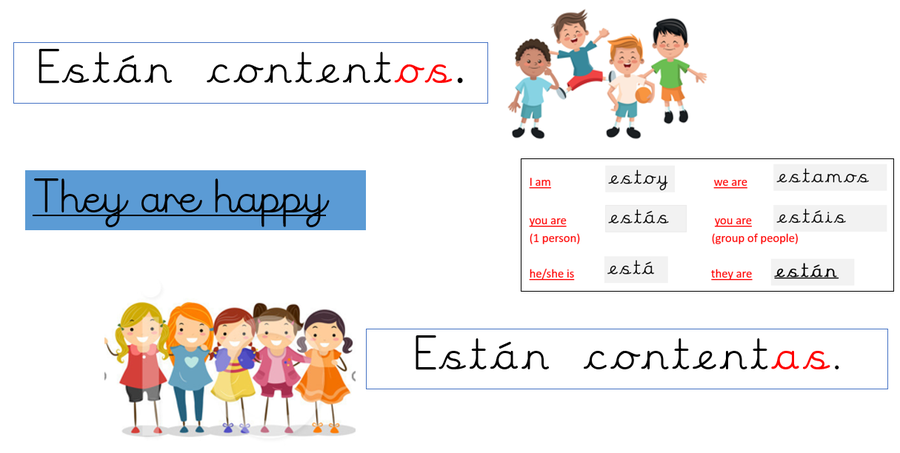
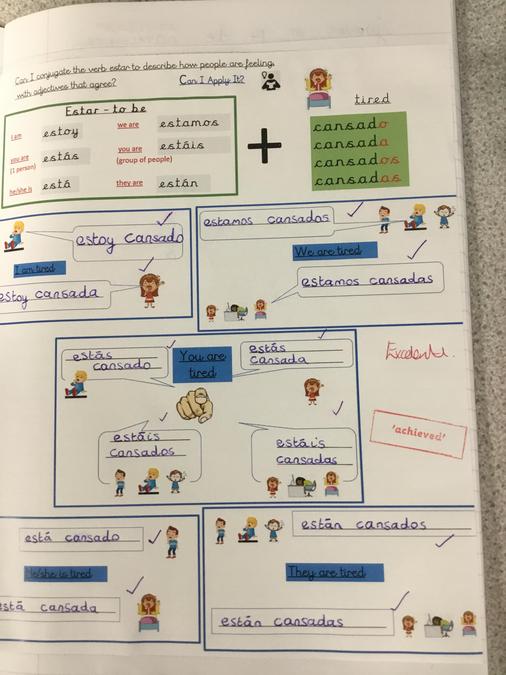

We extended our sentences using the word cuando (when), and described how the weather makes us feel.
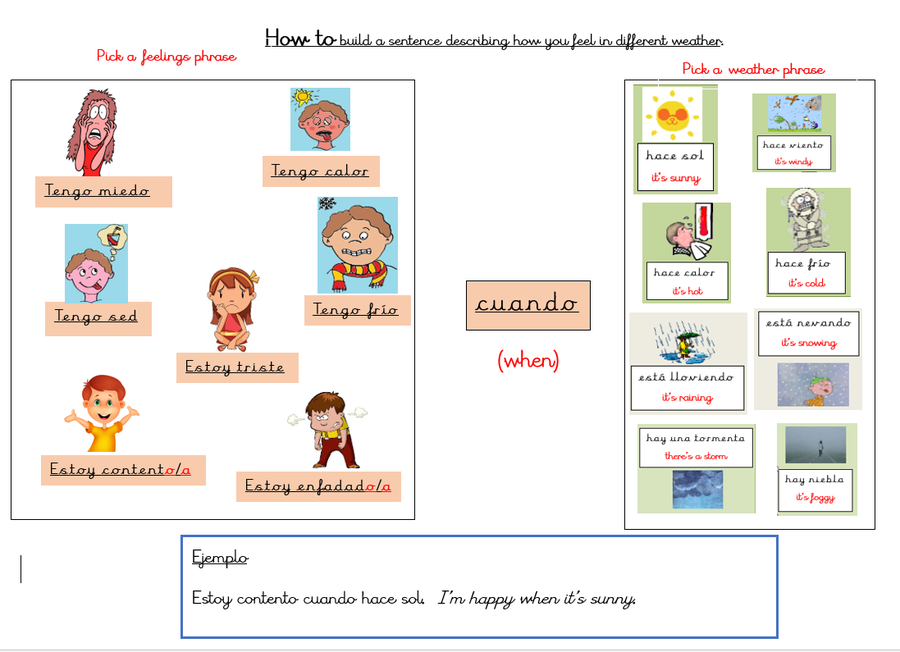
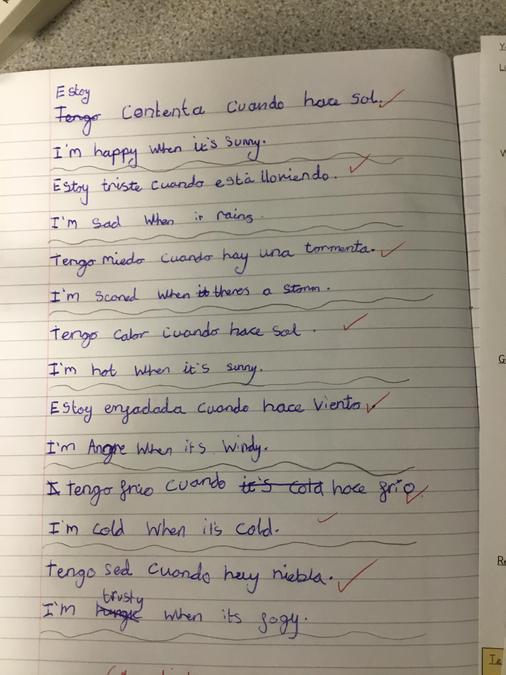
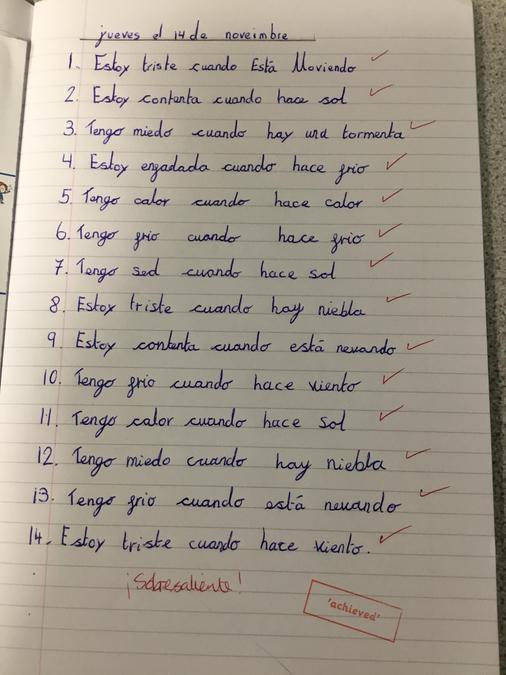
7.11.24
This week, we learnt how to express how we are feeling with a new verb, estar.
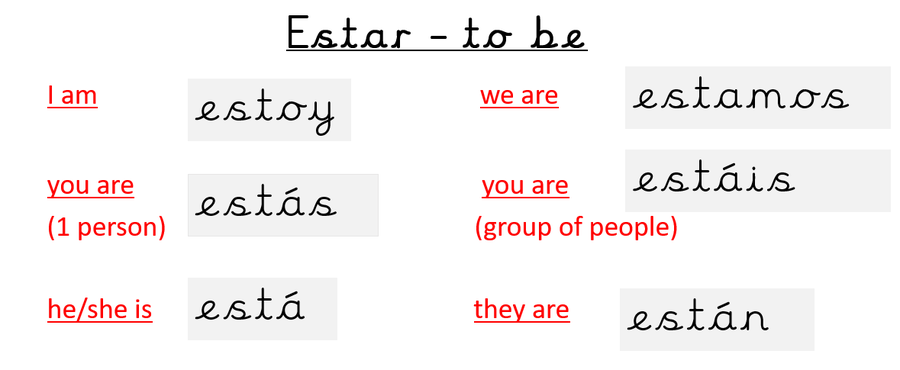
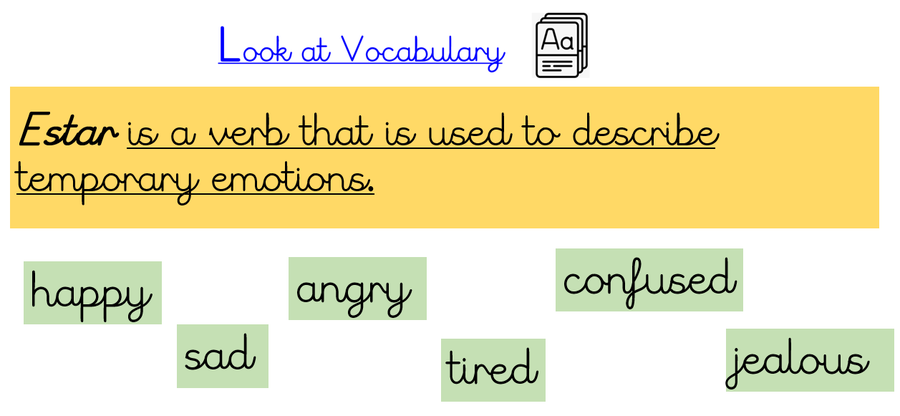
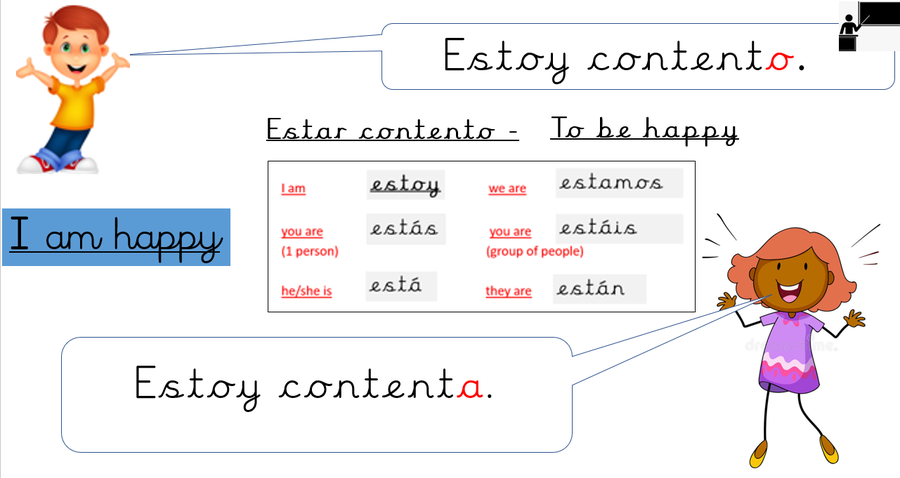
Estar song
We conjugated the verb by putting the all the pieces in the correct pattern.

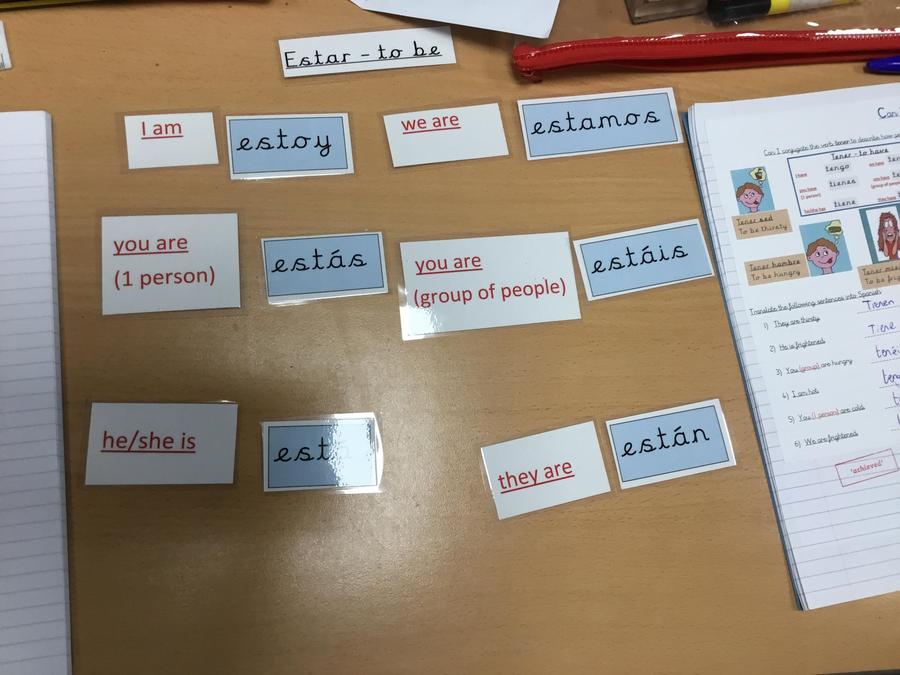
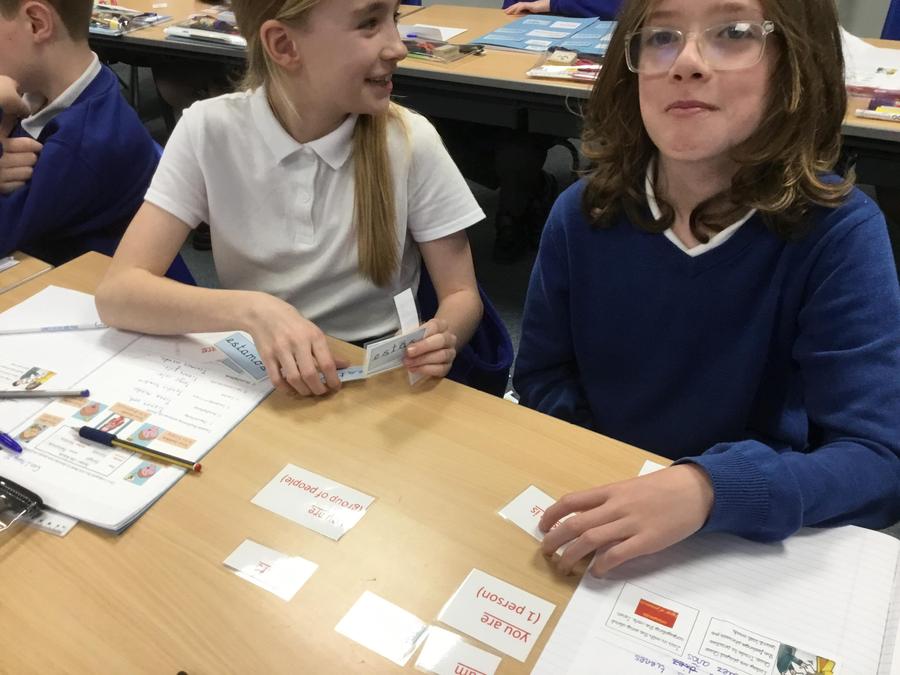
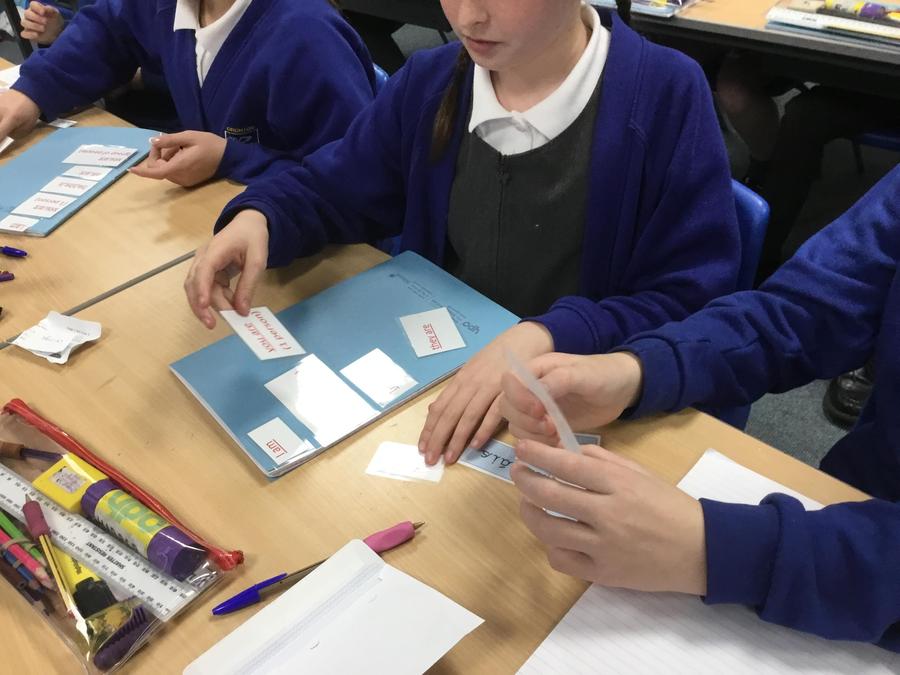
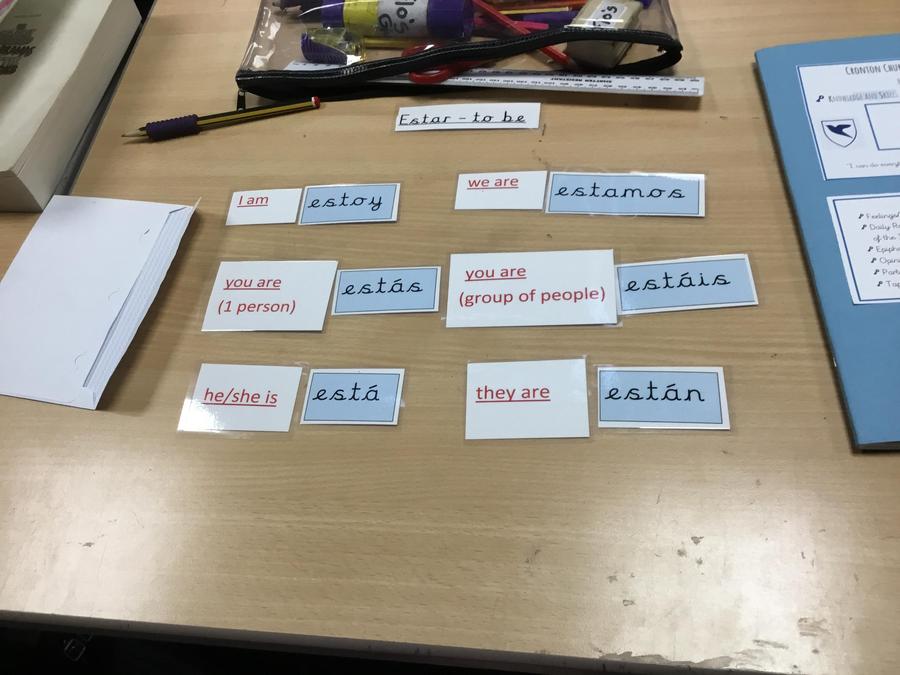
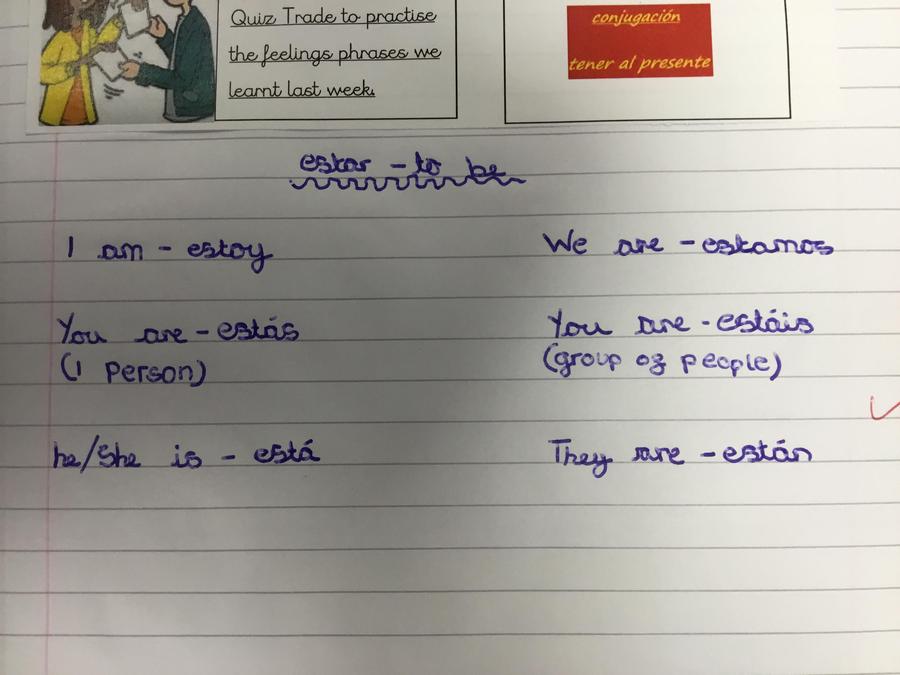
Autumn 1
24.10.24
This week, we started with a new song to practise greetings for different times of the day.
Then, we learnt some new phrases to express different feelings.
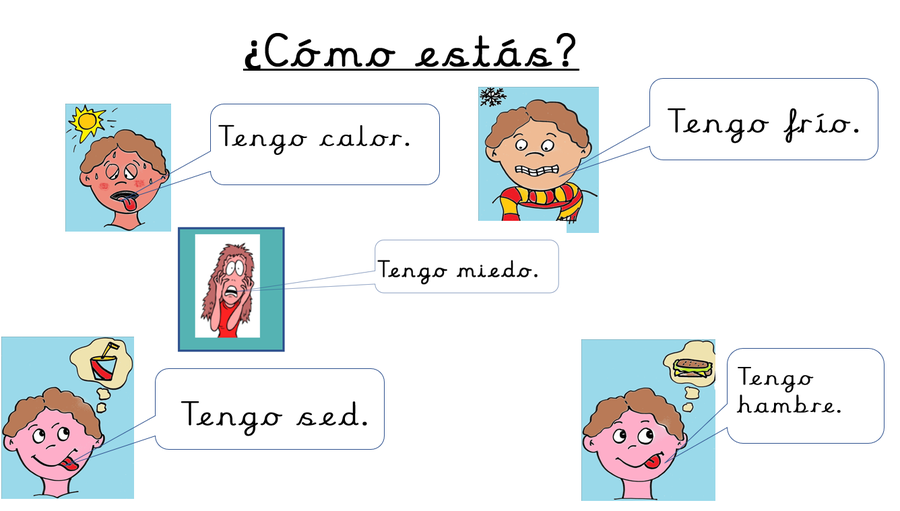
To use these phrases, we need the Spanish verb tener (to have).


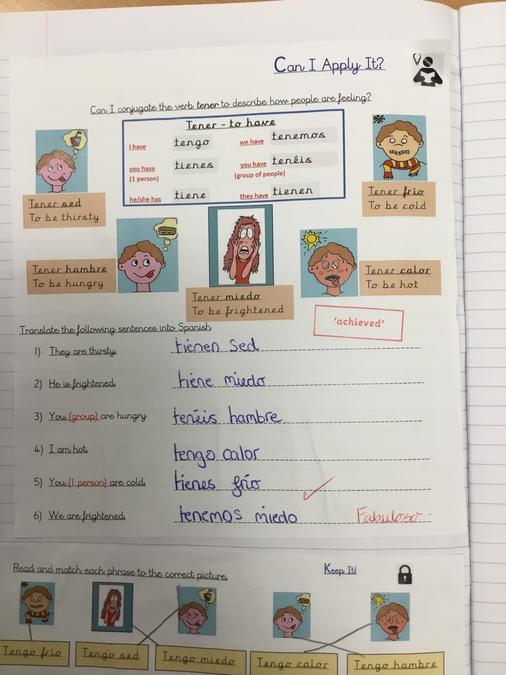
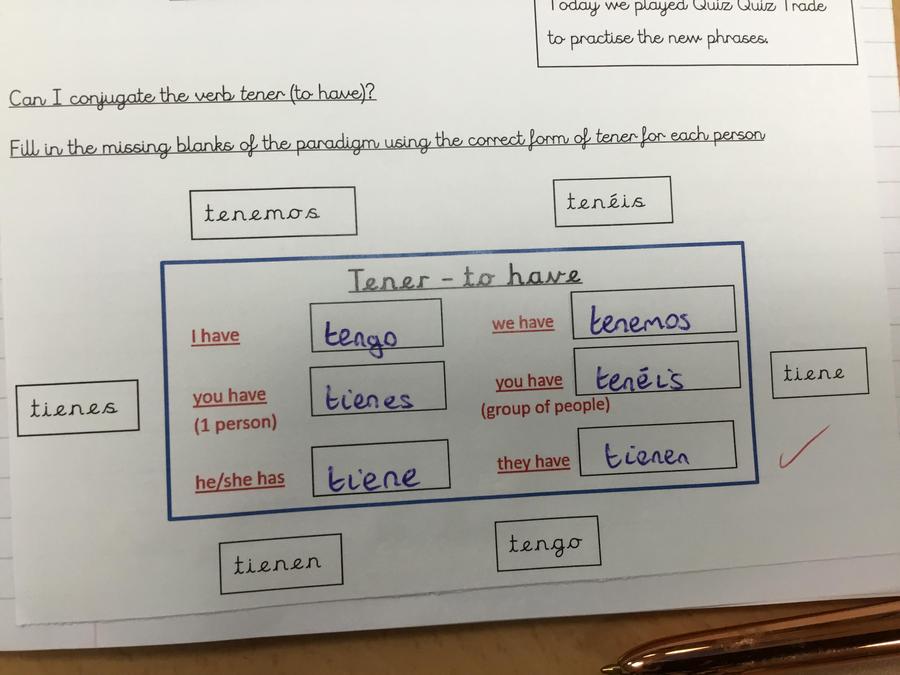
17.10.24
Today in Spanish, we wrote another letter to our pen pals in Spain. We sent them photographs of the different parts of the school. We hope to get our replies very soon and find out what the Spanish school in Madrid is like.
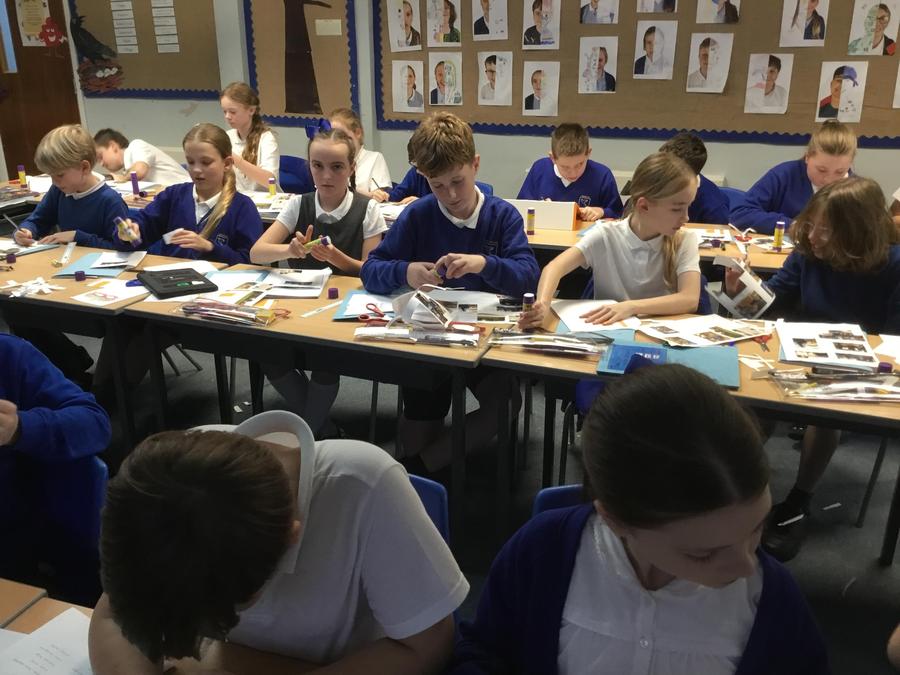

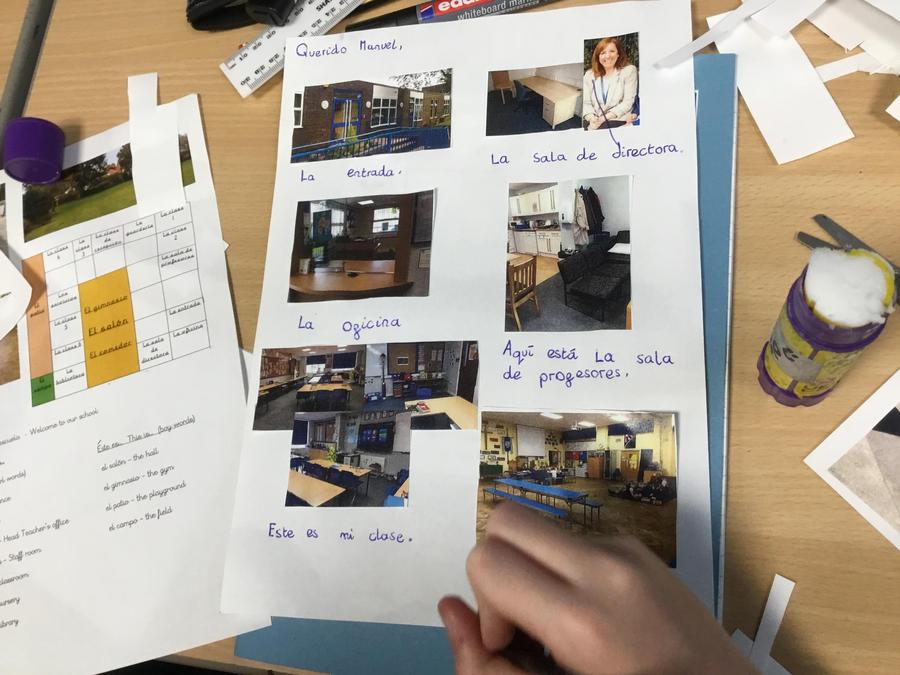
year-6
12.9.26
This week, we practised using the multiples of 100 to count groups of objects. We noticed that sometimes the ends of the numbers changed to match the gender of the nouns we were counting.
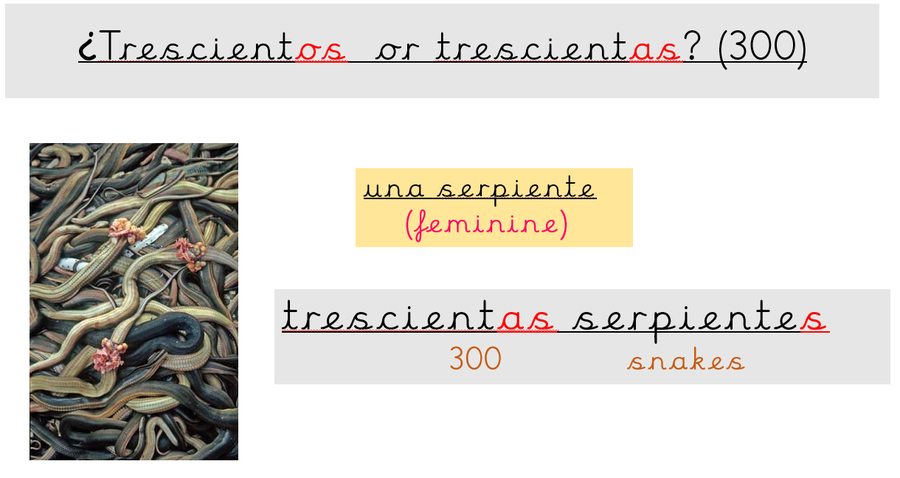

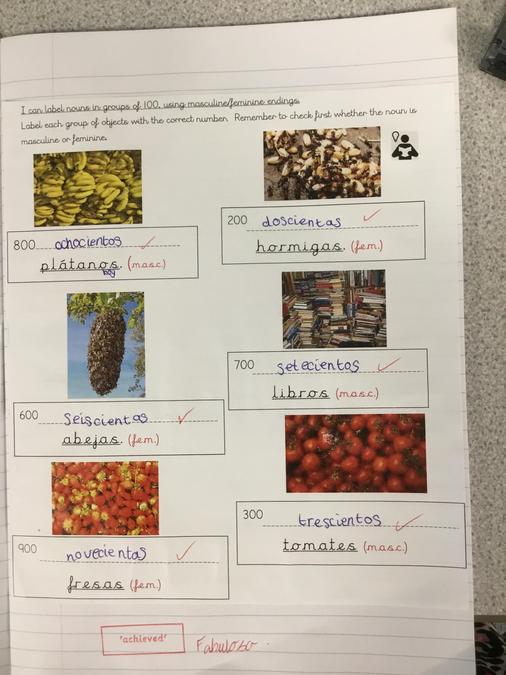

5.9.24
Today in Spanish, we counted in multiples of 100 up to 1,000.
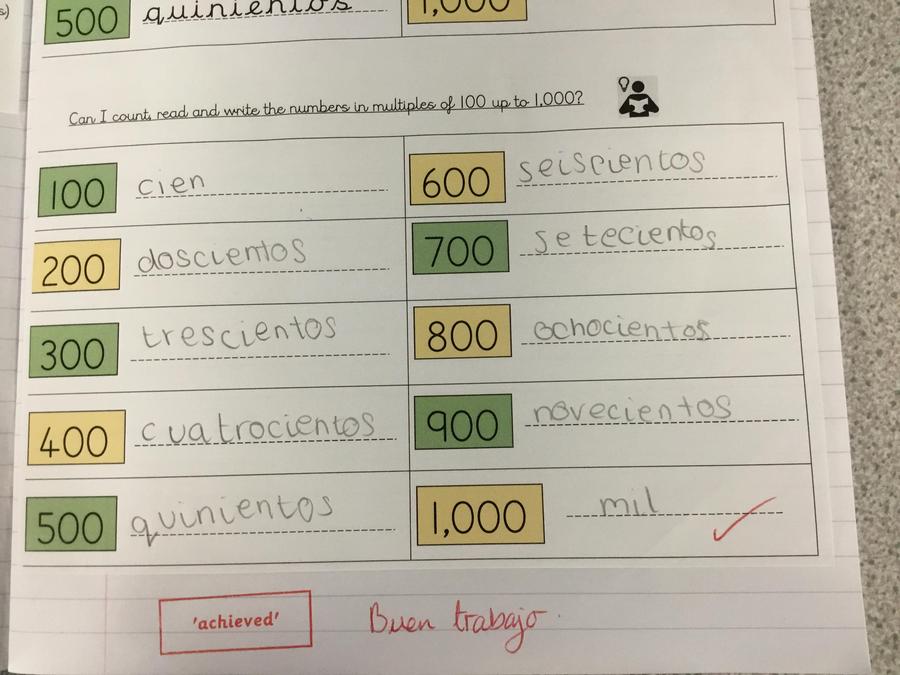
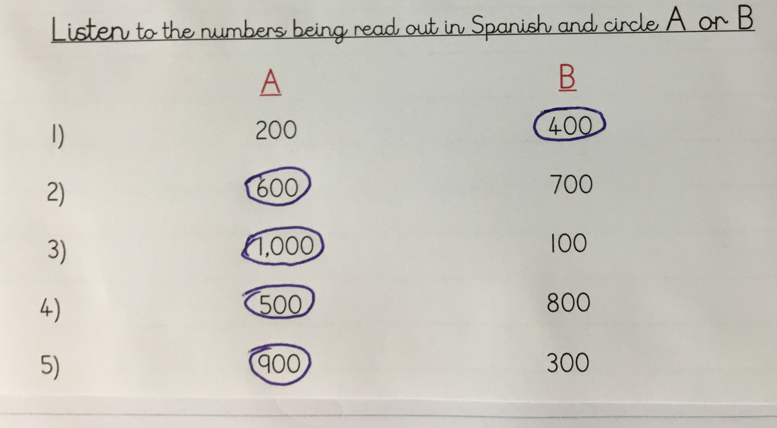
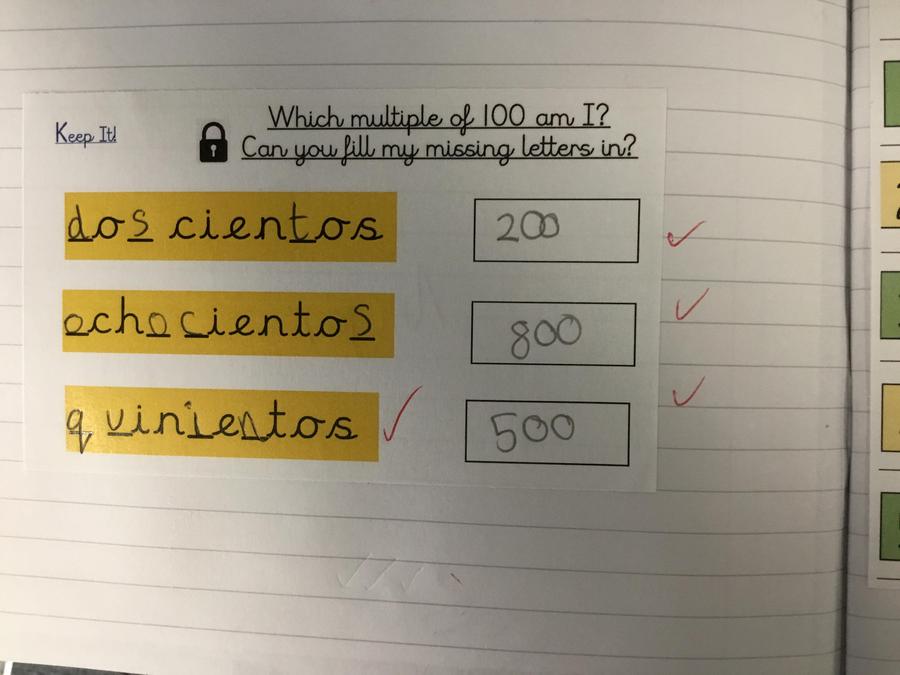




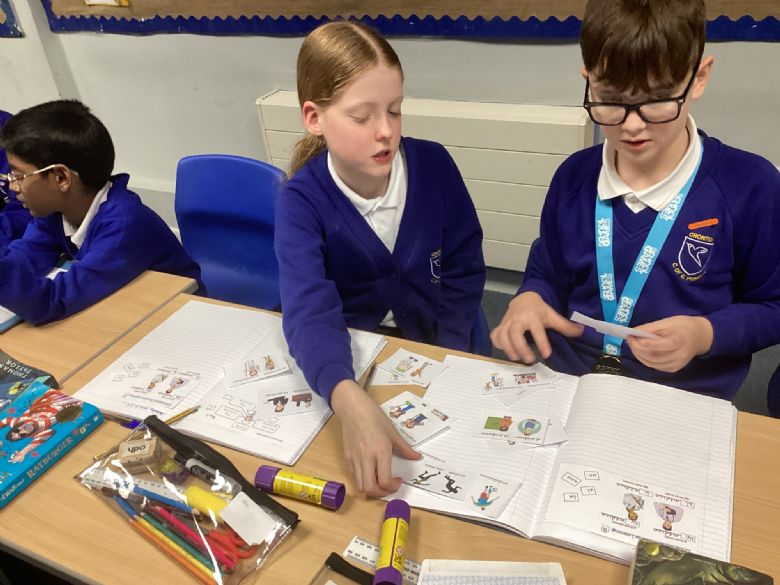
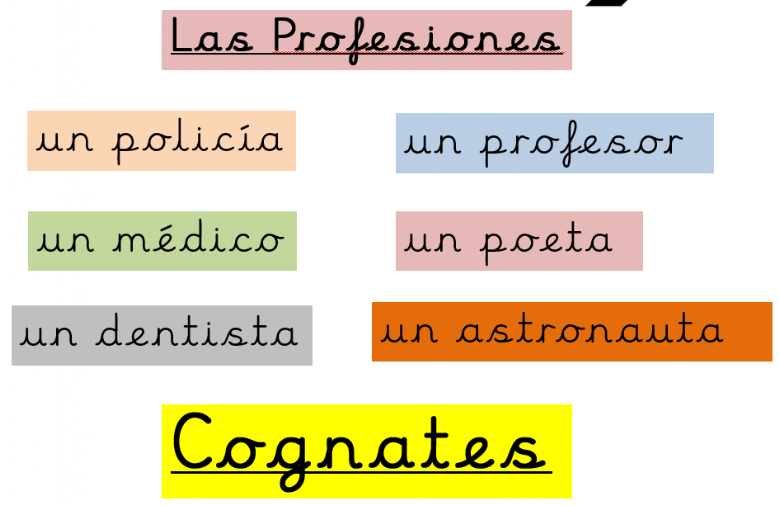
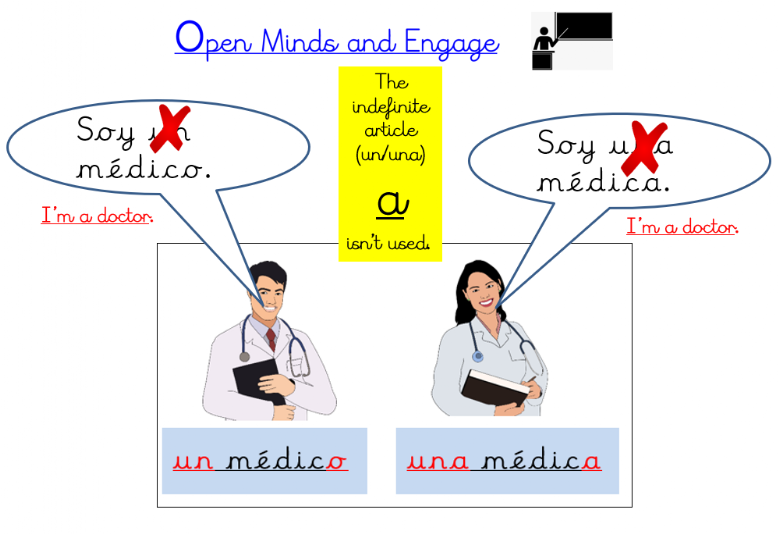


















.jpg?v=1769935883)





















